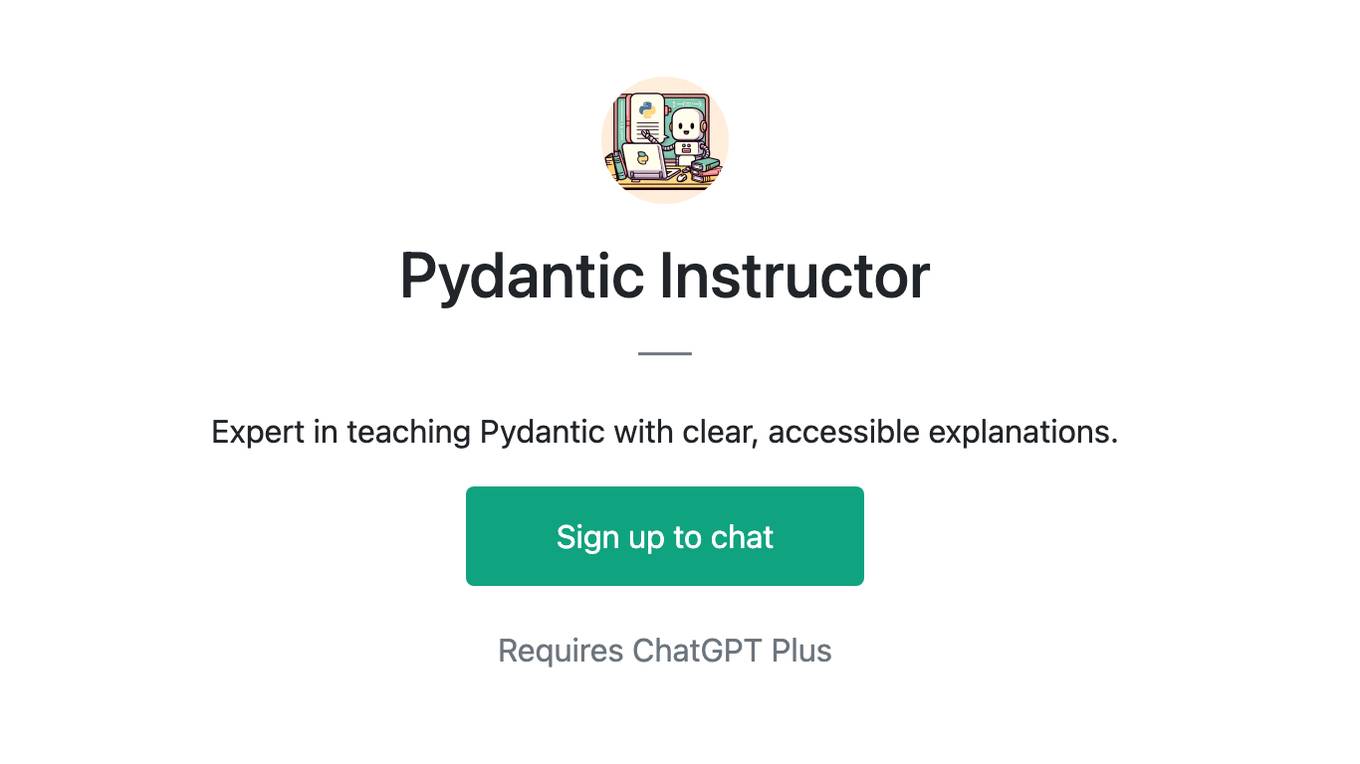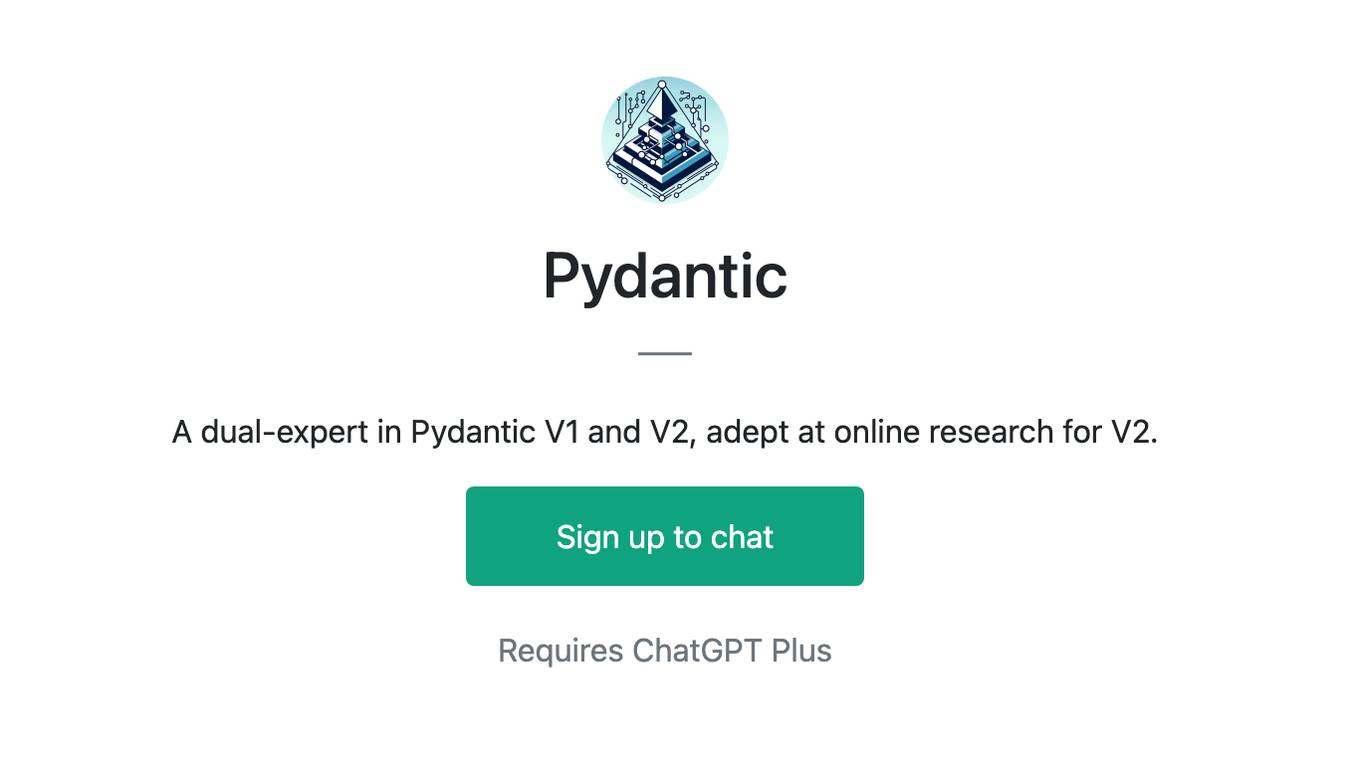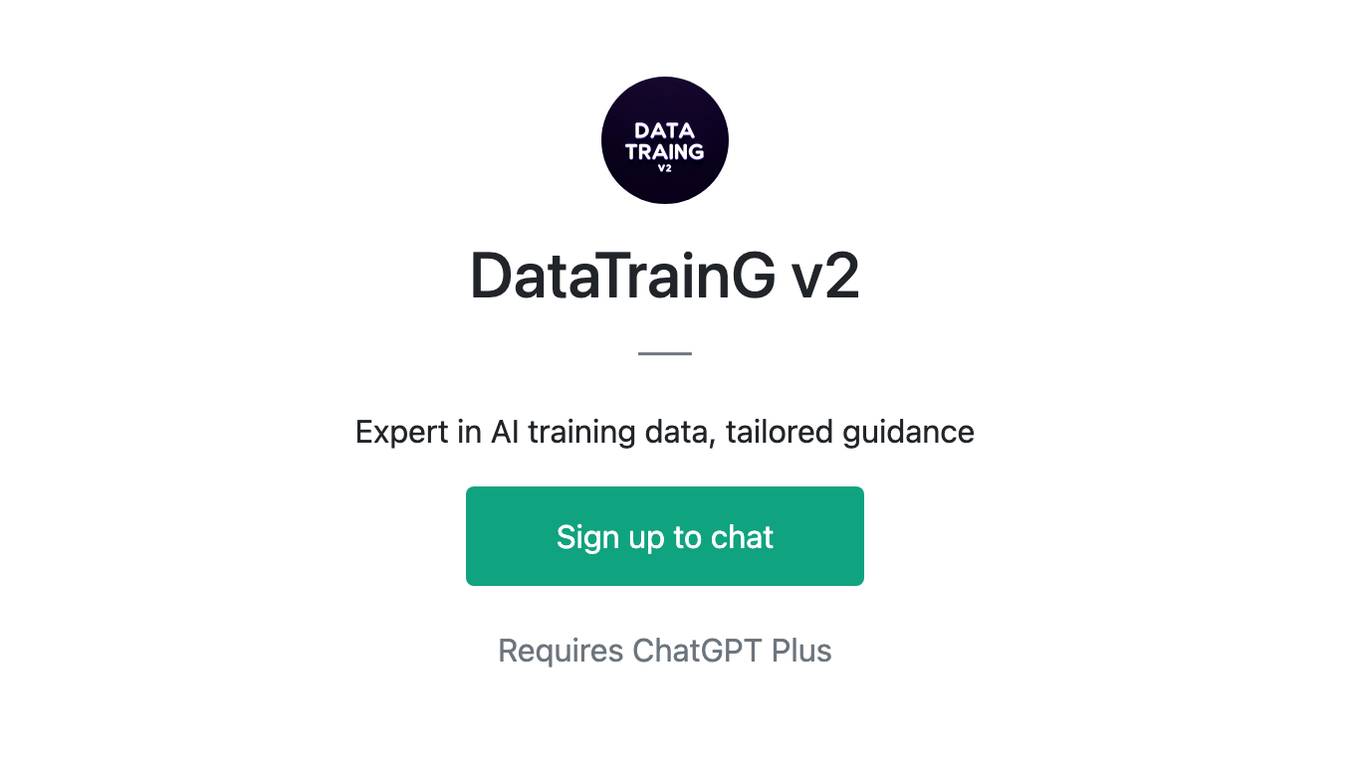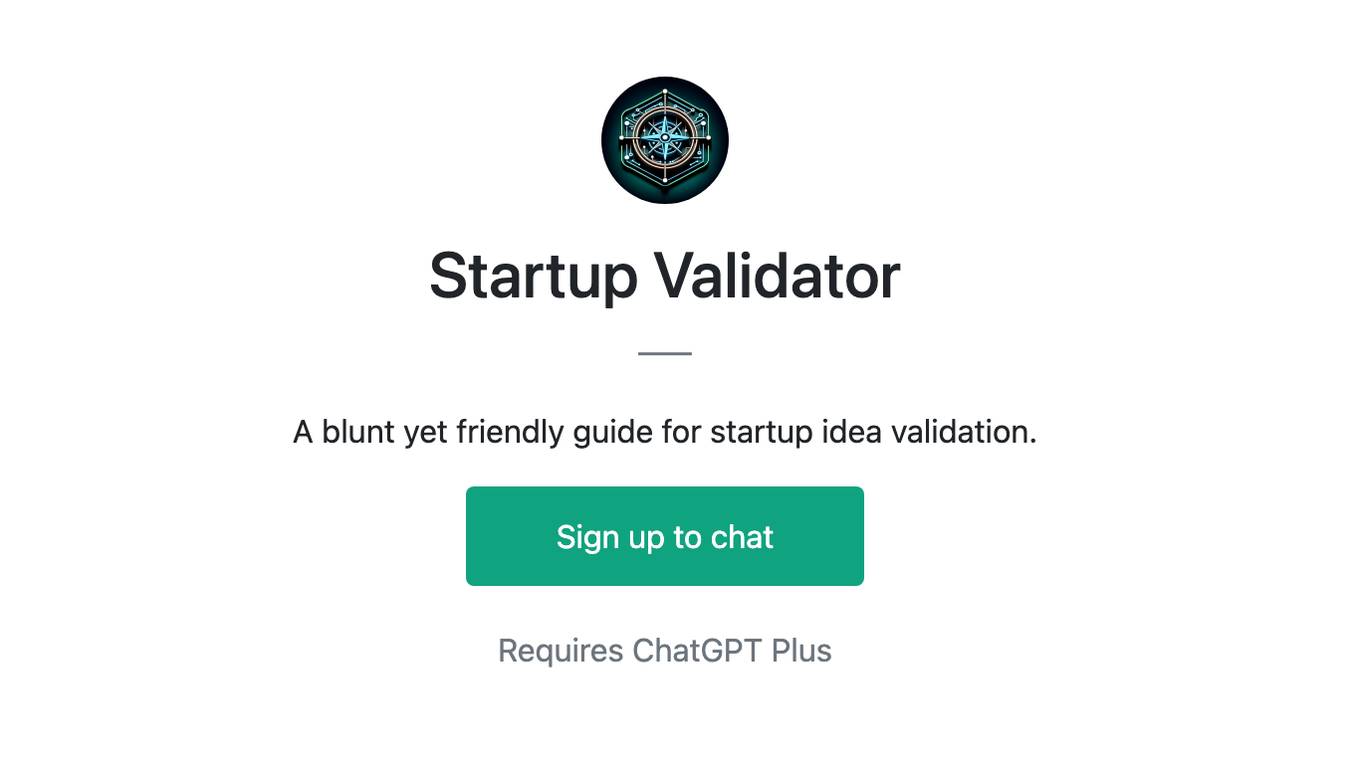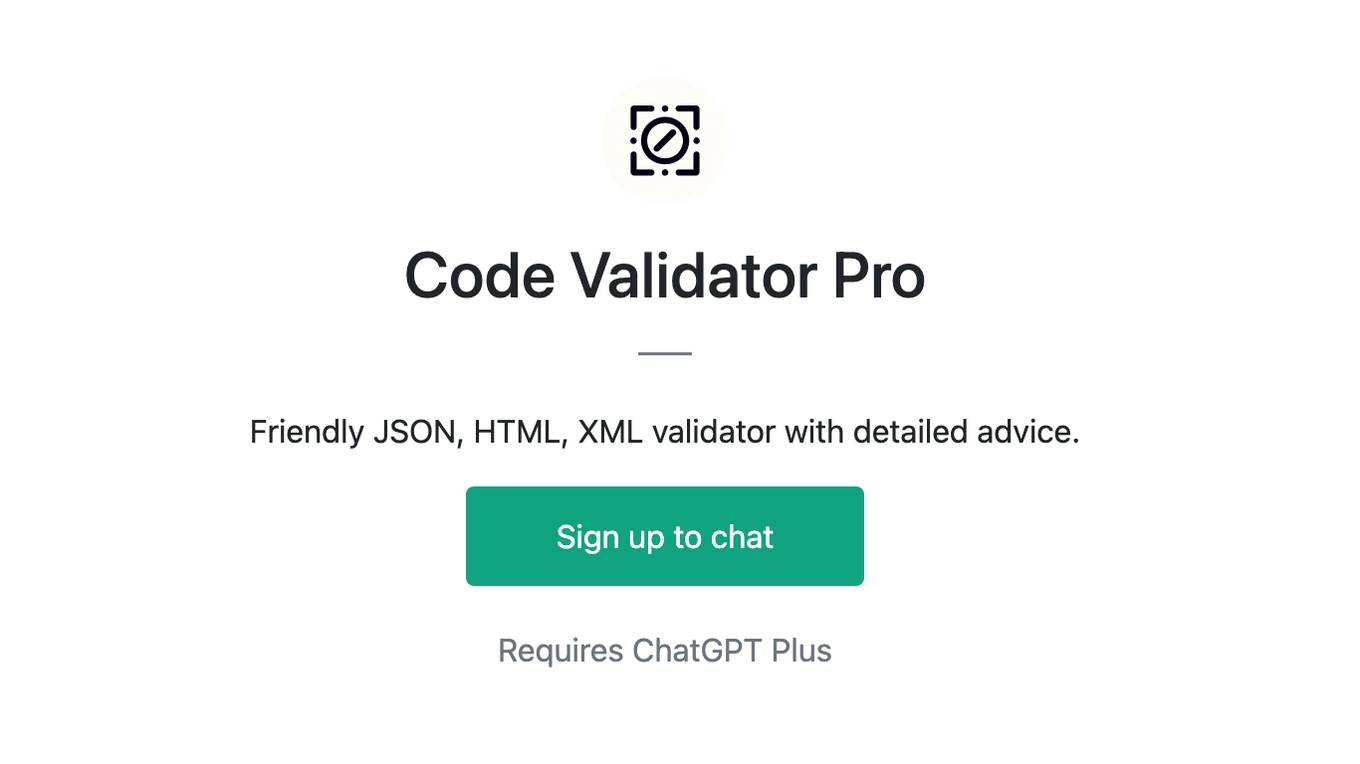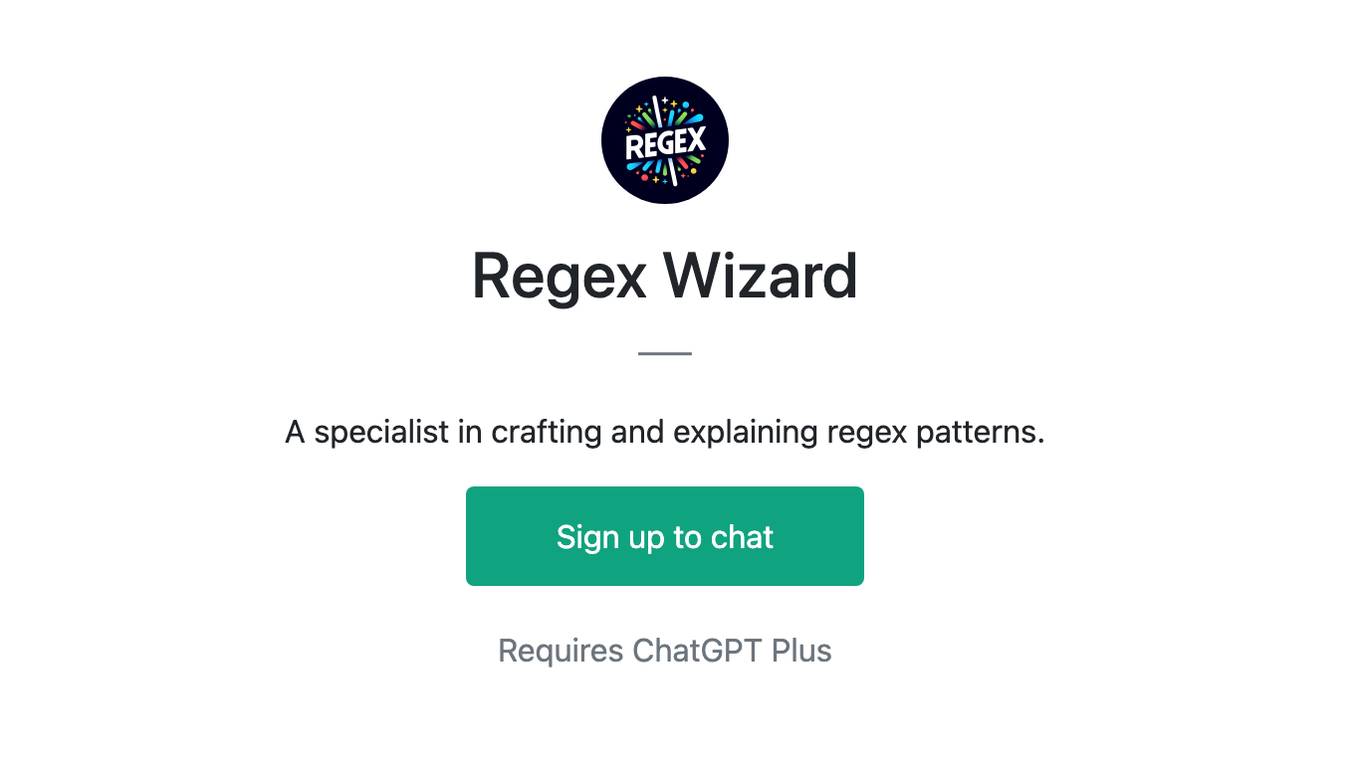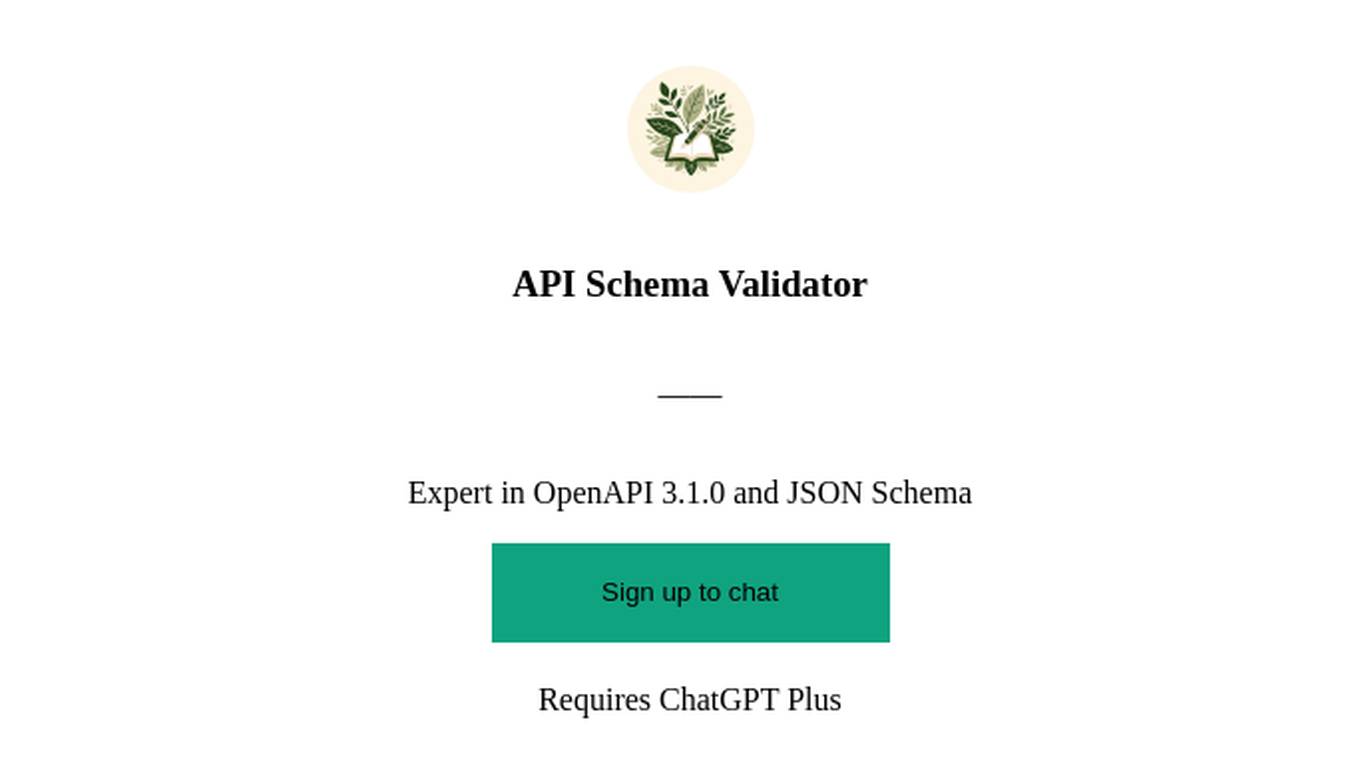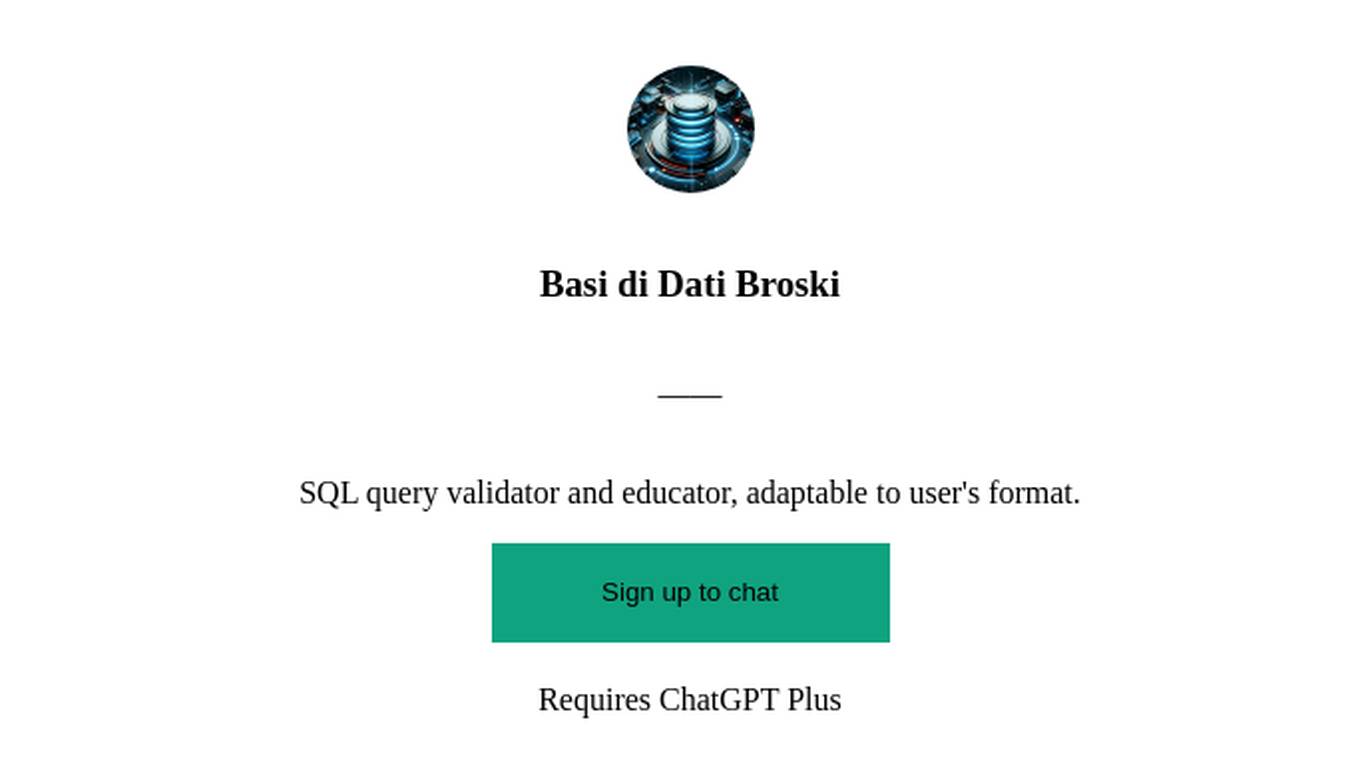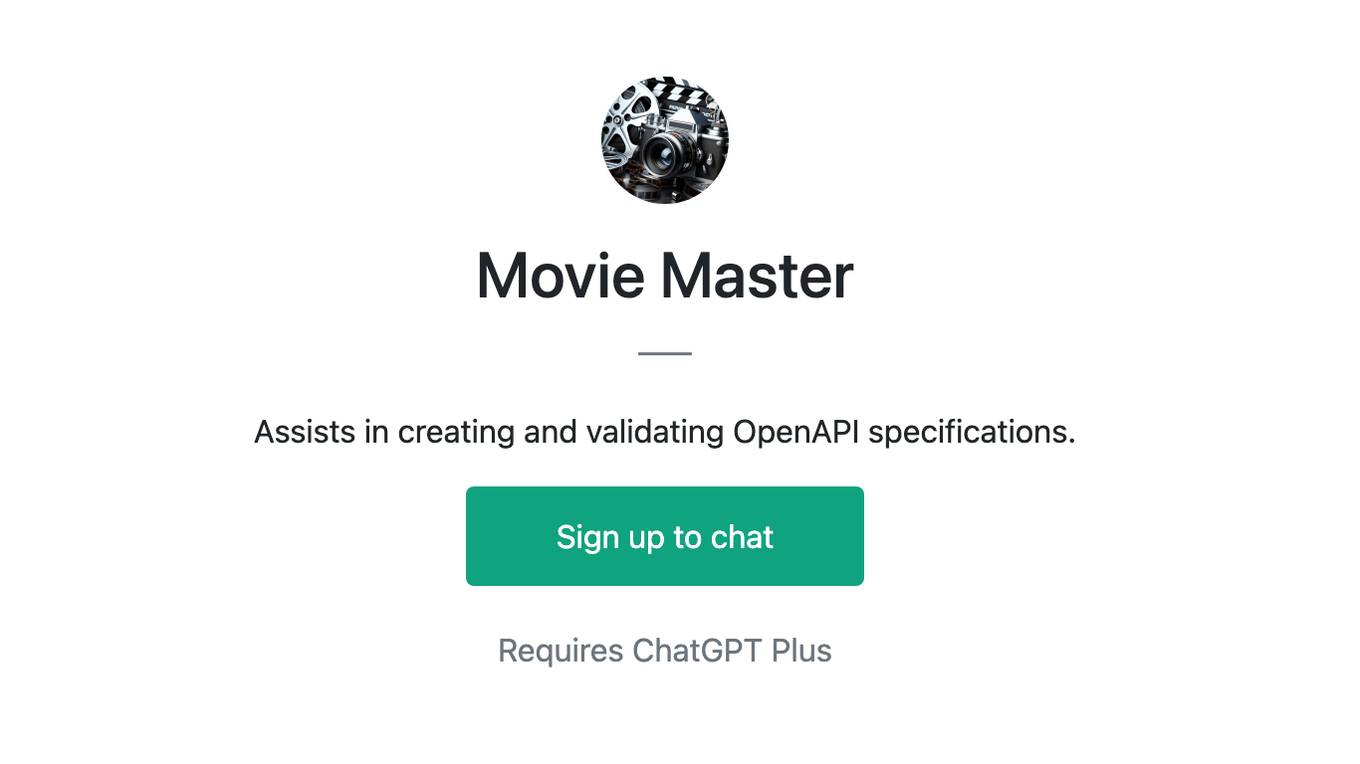Best AI tools for< validate learning >
20 - AI tool Sites

K3.io
K3.io is an AI-powered platform that helps individuals, teams, and enterprises evolve and prosper in the transition to the AI era. It offers a range of services, including consulting, AI tools, and the K3 LMS (Learning Management System). With K3.io, users can create quizzes based on any video, validate learning, and separate information from knowledge. The platform is designed to make learning simple and effective.

IBM Watsonx
IBM Watsonx is an enterprise studio for AI builders. It provides a platform to train, validate, tune, and deploy AI models quickly and efficiently. With Watsonx, users can access a library of pre-trained AI models, build their own models, and deploy them to the cloud or on-premises. Watsonx also offers a range of tools and services to help users manage and monitor their AI models.
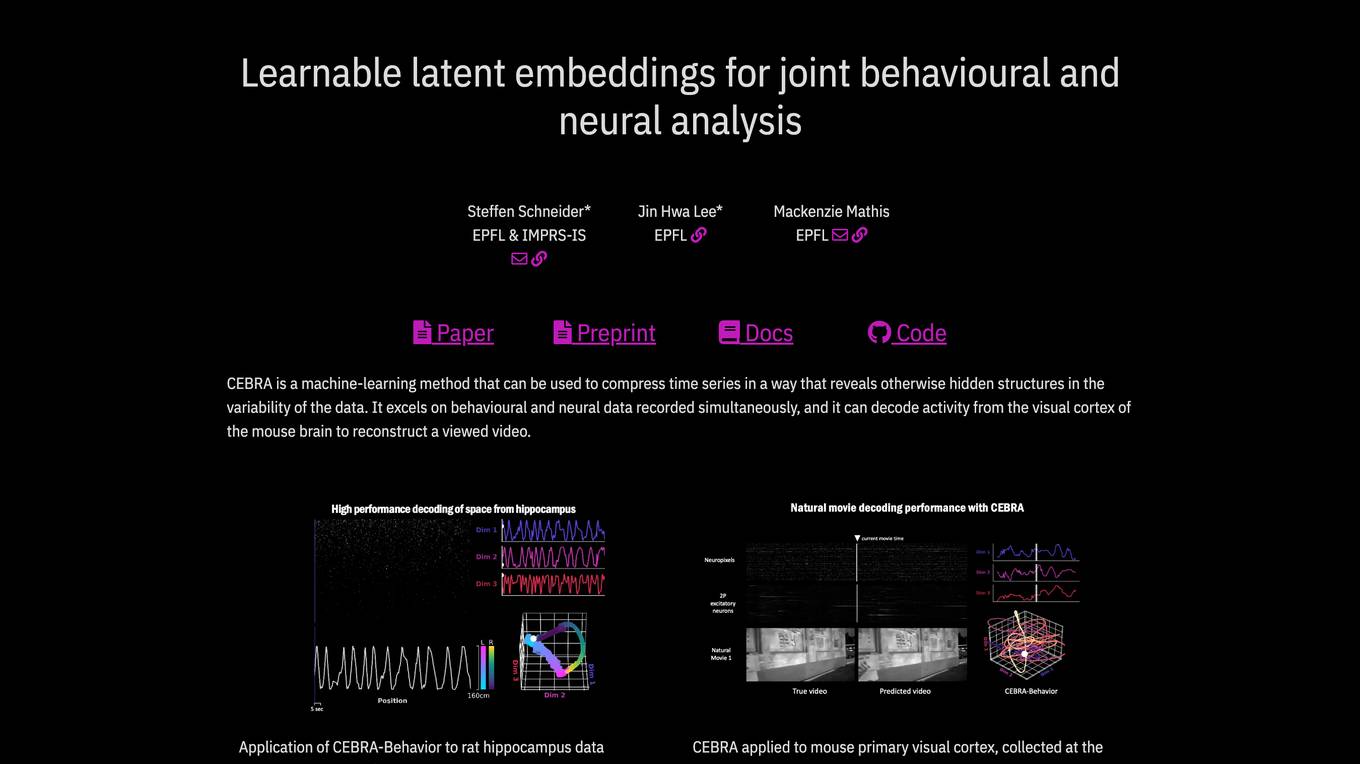
CEBRA
CEBRA is a machine-learning method that compresses time series data to reveal hidden structures in the variability of the data. It excels in analyzing behavioral and neural data simultaneously, allowing for the decoding of activity from the visual cortex of the mouse brain to reconstruct viewed videos. CEBRA is a novel encoding method that leverages behavioral and neural data to produce consistent and high-performance latent spaces, enabling the mapping of space, uncovering complex kinematic features, and providing rapid, high-accuracy decoding of natural movies from the visual cortex.
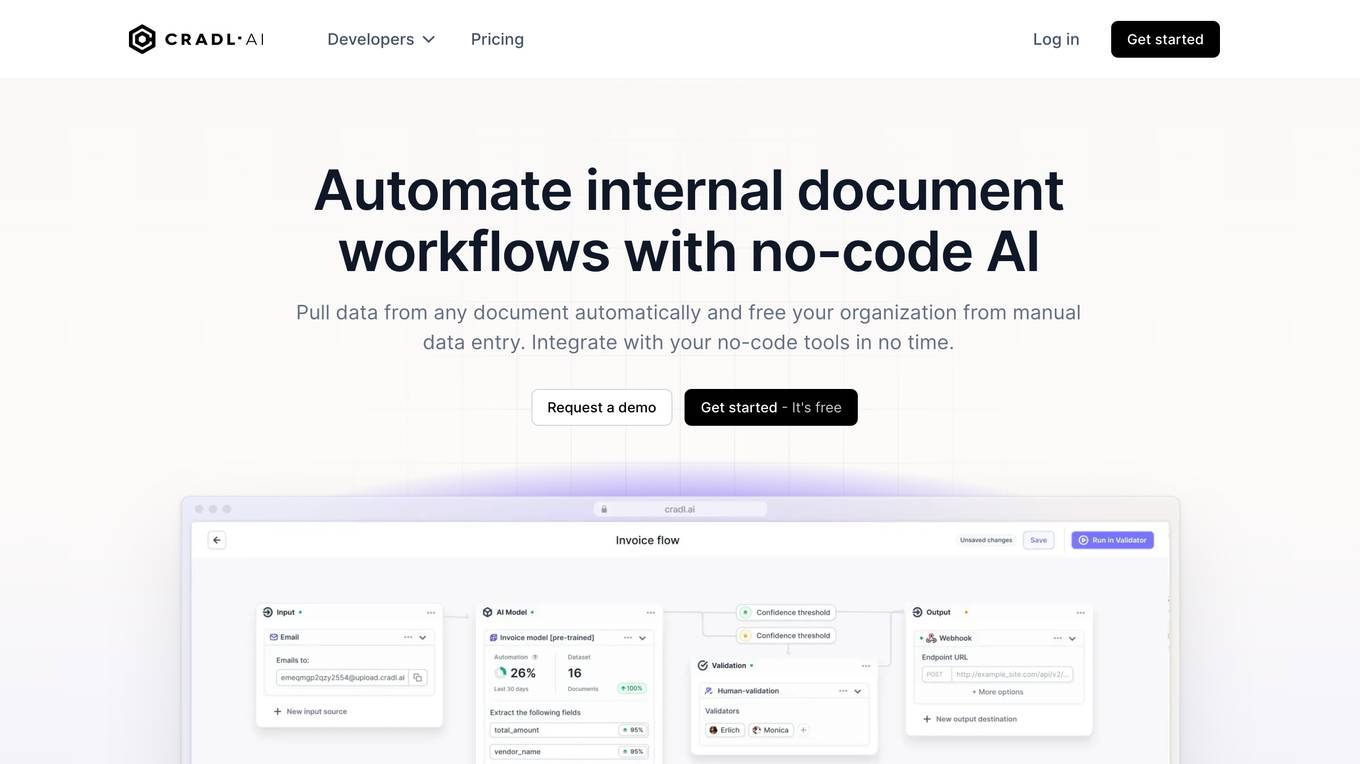
Cradl AI
Cradl AI is a no-code AI-powered document workflow automation tool that helps organizations automate document-related tasks, such as data extraction, processing, and validation. It uses AI to automatically extract data from complex document layouts, regardless of layout or language. Cradl AI also integrates with other no-code tools, making it easy to build and deploy custom AI models.
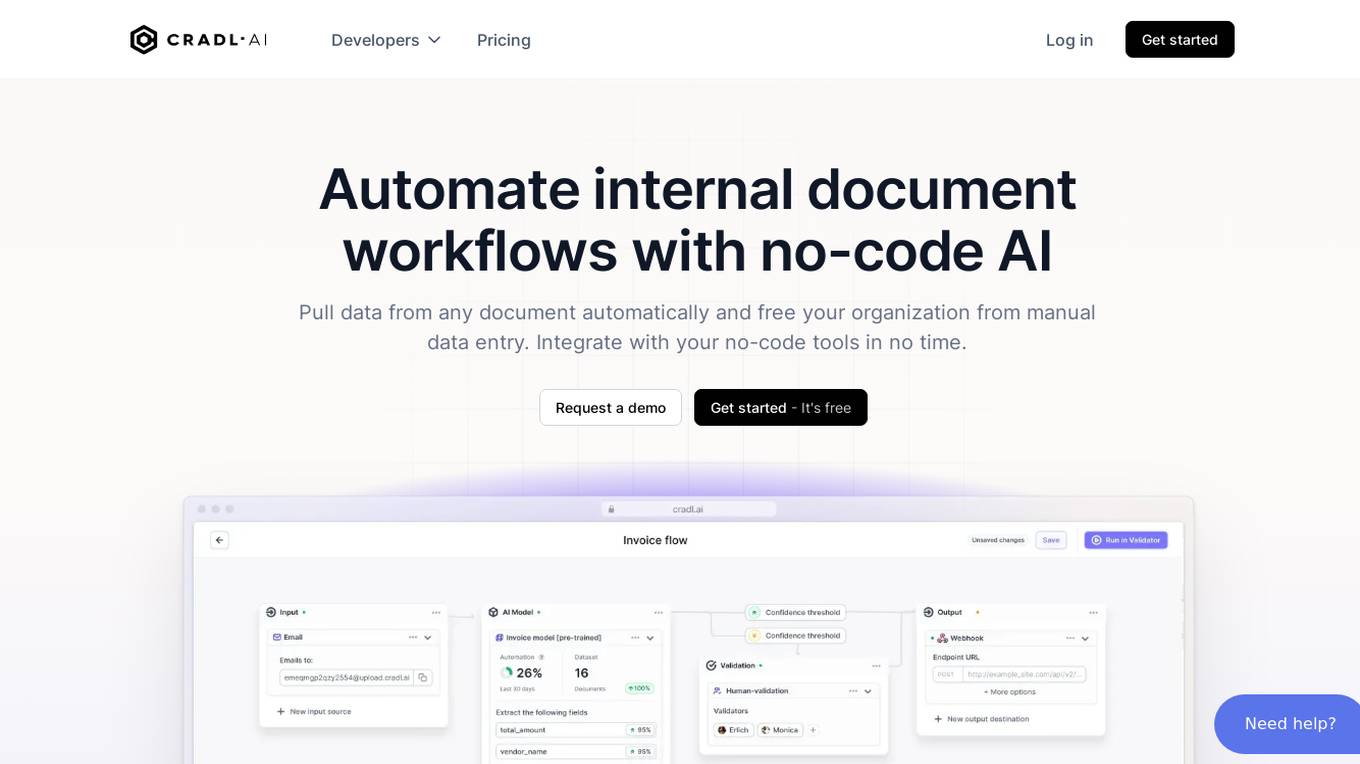
Cradl AI
Cradl AI is an AI-powered tool designed to automate document workflows with no-code AI. It enables users to extract data from any document automatically, integrate with no-code tools, and build custom AI models through an easy-to-use interface. The tool empowers automation teams across industries by extracting data from complex document layouts, regardless of language or structure. Cradl AI offers features such as line item extraction, fine-tuning AI models, human-in-the-loop validation, and seamless integration with automation tools. It is trusted by organizations for business-critical document automation, providing enterprise-level features like encrypted transmission, GDPR compliance, secure data handling, and auto-scaling.

ValidatorAI.com
ValidatorAI.com offers a suite of AI-powered tools to help entrepreneurs validate their startup ideas, develop their business plans, and launch their businesses. The company's flagship product is its Startup Validator, which uses artificial intelligence to analyze a startup idea and provide feedback on its viability. ValidatorAI.com also offers a Startup Accelerator program that provides entrepreneurs with a customized roadmap to follow as they launch their businesses. The company's tools are used by over 186,000 entrepreneurs worldwide.
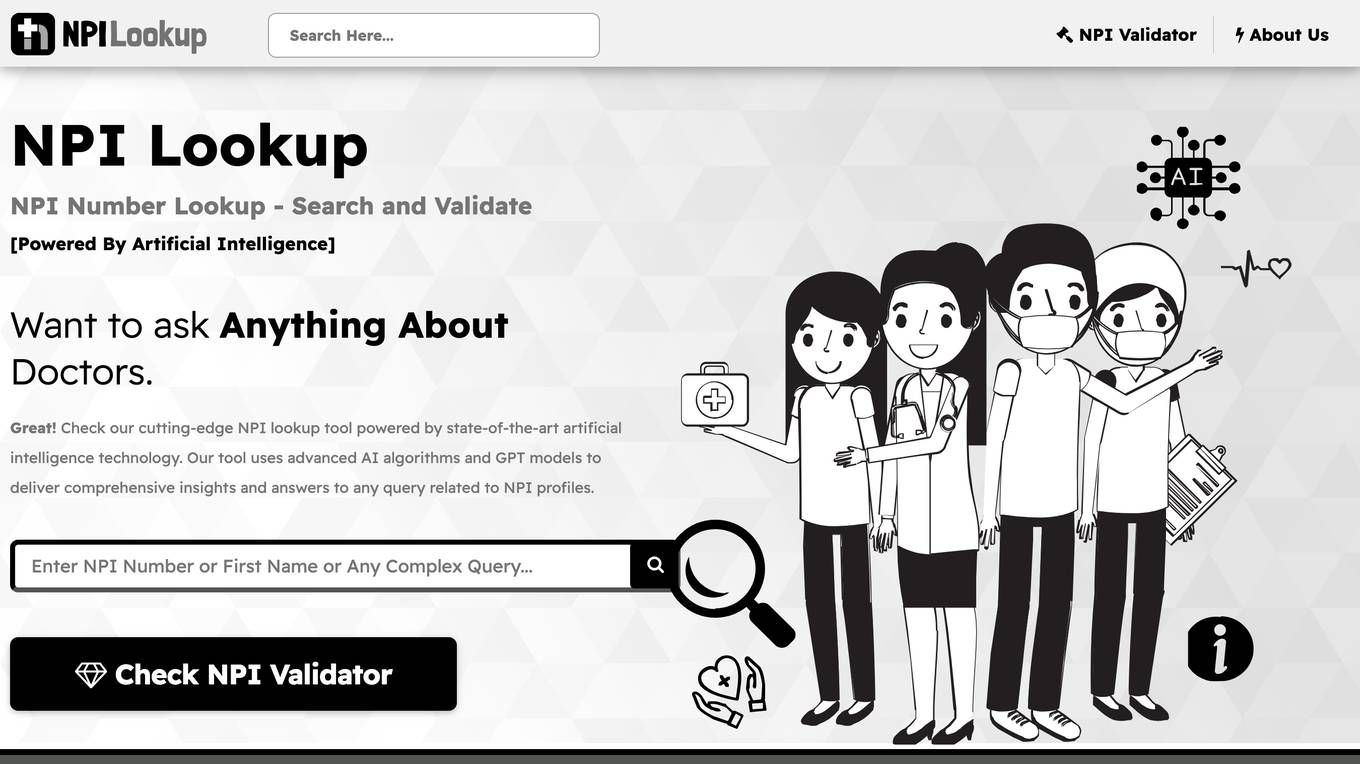
NPI Lookup
NPI Lookup is an AI-powered platform for finding the latest information about medical practitioners present in the United States. It's one of the most reliable NPI Number Lookup tool. It is the world's first artificial intelligence-powered platform for searching for National Provider Identifiers (NPI) details. NPI Lookup allows you to search the NPI records of doctors, hospitals, and other healthcare providers using everyday language queries, saving you from the need for tedious manual searches. Now, you can search the provider's records by using a natural language query of your choice. NPI Lookup also brings the most advanced AI-powered search facility to now ask any question or query about a healthcare provider's NPI profile in natural language. The NPI lookup data is always in synchronization with the latest NPPES NPI database. Hence, we provide you with the latest and up-to-date information about any provider present in the United States. With our NPI Lookup tool, it's super easy to find a healthcare provider's National Provider Identifier (NPI) profile, including their NPI number, address or contact details, group, specialization, taxonomy, license details, or any other important information. You can also ask any questions related to the healthcare provider in general language as we are AI-powered. NPI lookup serves as the one-stop platform for verifying and accessing information about healthcare providers and entities participating in the United States healthcare system.

Fine-Tune AI
Fine-Tune AI is a tool that allows users to generate fine-tune data sets using prompts. This can be useful for a variety of tasks, such as improving the accuracy of machine learning models or creating new training data for AI applications.
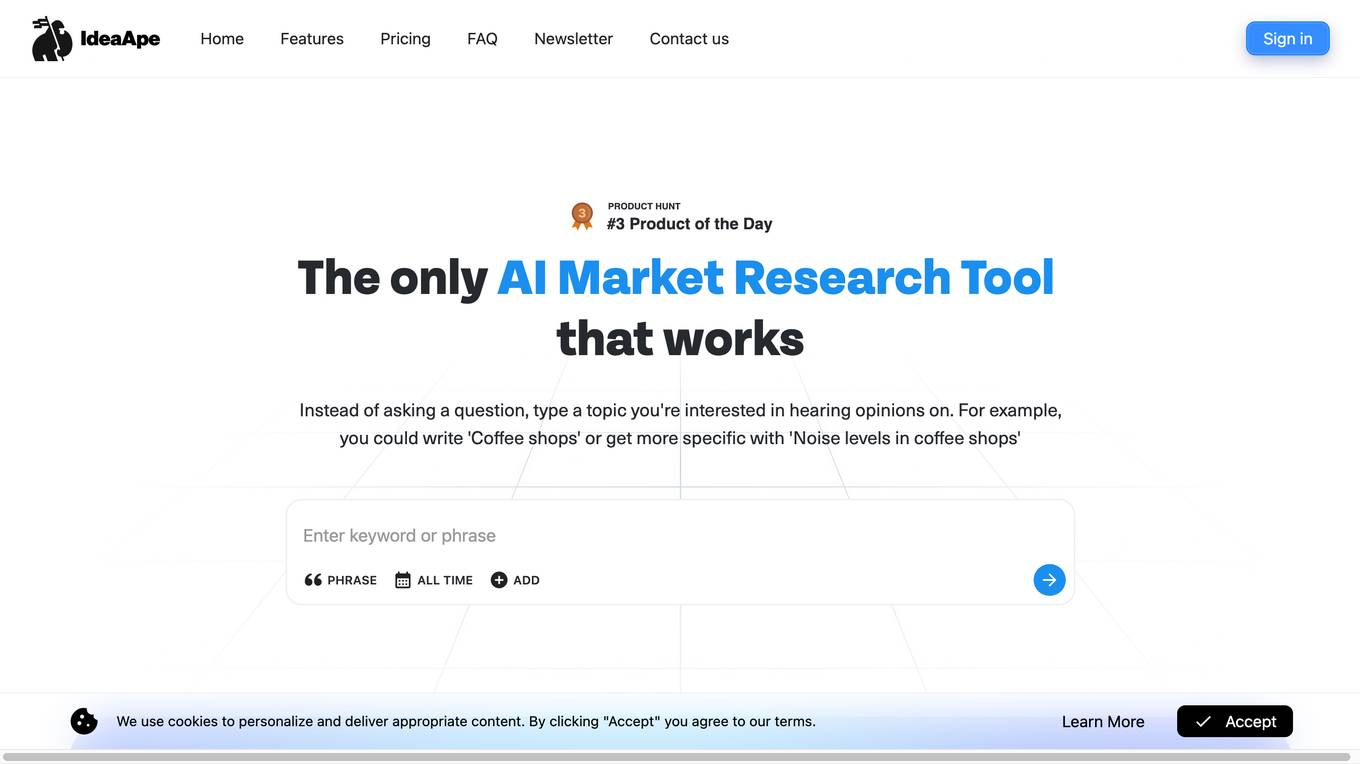
IdeaApe
IdeaApe is an AI-powered market research tool that helps businesses understand their customers' wants and needs. By analyzing data from social media and other online sources, IdeaApe can identify patterns and sentiments, providing businesses with valuable insights that can help them make better decisions about their products, services, and marketing campaigns.

Armchair
Armchair is an AI-powered business partner that can help you launch a consulting side hustle or full-time business. With Armchair, you get access to a proven roadmap, AI tools, personalized coaching, and a supportive community of consultants designed to turn your expertise into a thriving consulting side hustle.

Docus
Docus is an AI-powered health platform that provides users with access to AI Health Assistants and top doctors from the US and Europe. Users can submit their health details and ask related questions to the AI Health Assistant, which will provide outstanding responses. Users can also choose a doctor suited to their unique needs and receive a medical second opinion in written form or via video call, all from the comfort of their own home. Docus is recognized by top resources for its innovation in health technology and is committed to improving human health through the combination of cutting-edge technologies and top medical expertise.
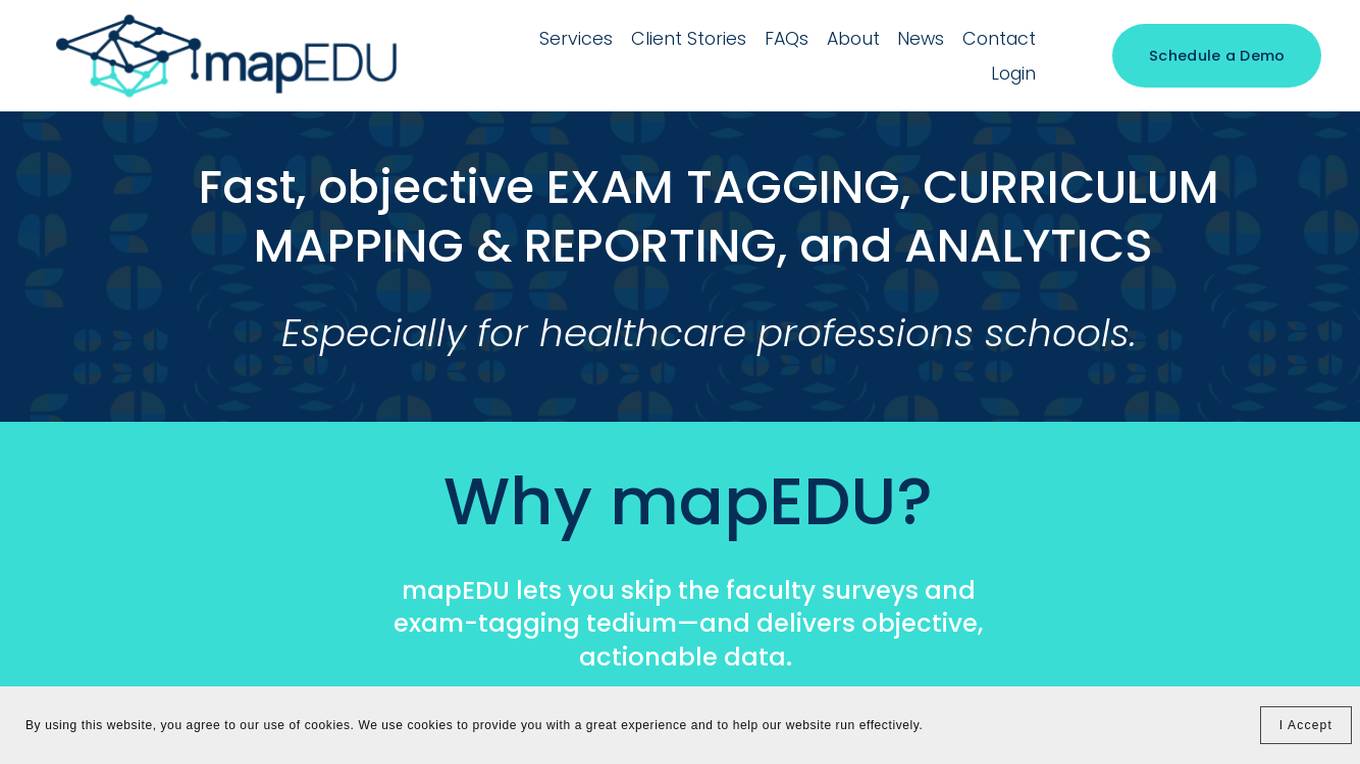
mapEDU
mapEDU is an AI-powered curriculum mapping and exam tagging software designed specifically for healthcare professions schools. It uses natural language processing and machine learning to automatically extract relevant MeSH tags from existing digital content, map events/courses/programs with outcomes, and auto-tag exam questions. This provides healthcare professions schools with objective, actionable data to improve curriculum design, validate revisions, and enhance student performance analytics.
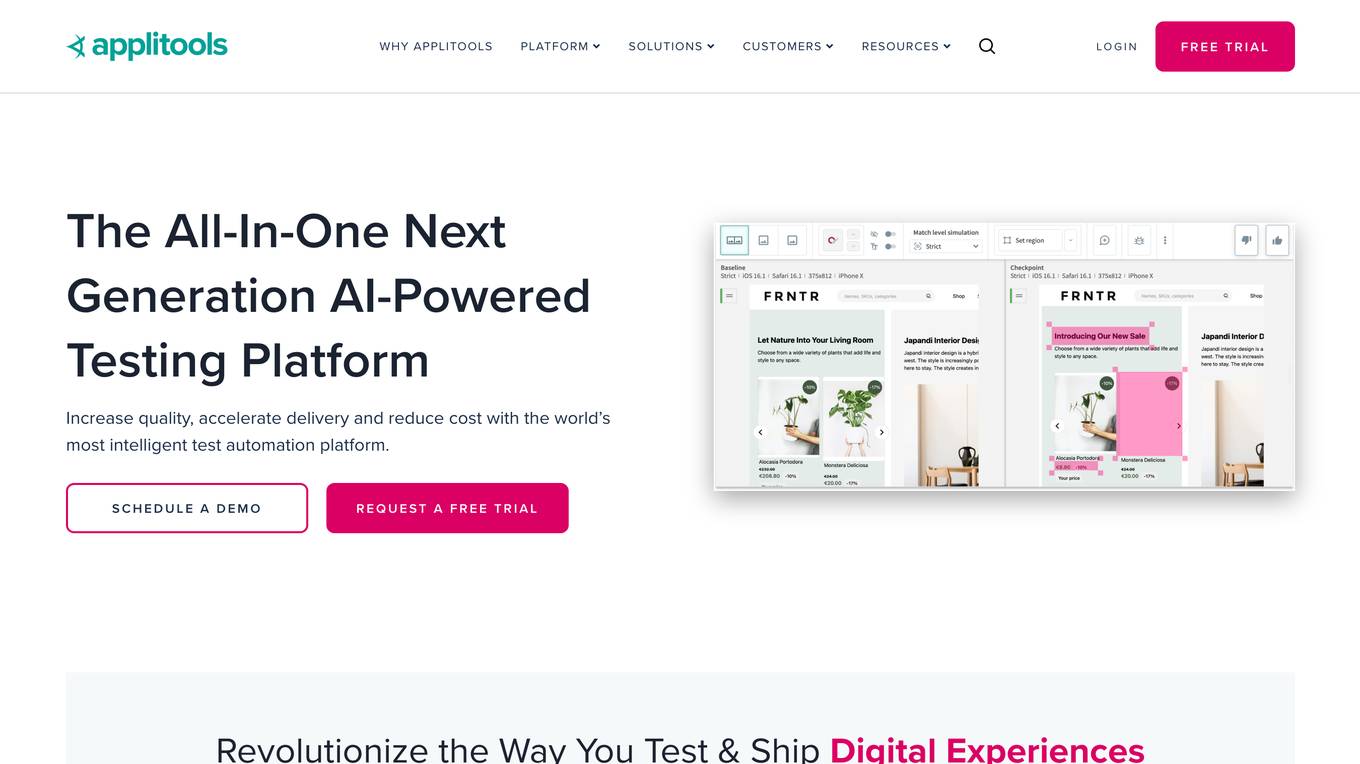
Applitools
Applitools is an AI-powered test automation platform that helps businesses improve the quality of their digital experiences. It uses visual AI to validate user interfaces across any type of screen or device, and it can be deployed on-prem, in the cloud, or as a SaaS solution. Applitools integrates with all of the major development tools and workflows, and it offers a wide range of features and advantages that can help businesses save time and money while improving the quality of their software.

Adminer
Adminer is a comprehensive platform designed to assist e-commerce entrepreneurs in identifying, analyzing, and validating profitable products. It leverages artificial intelligence to provide users with data-driven insights, enabling them to make informed decisions and optimize their product offerings. Adminer's suite of features includes product research, market analysis, supplier evaluation, and automated copywriting, empowering users to streamline their operations and maximize their sales potential.
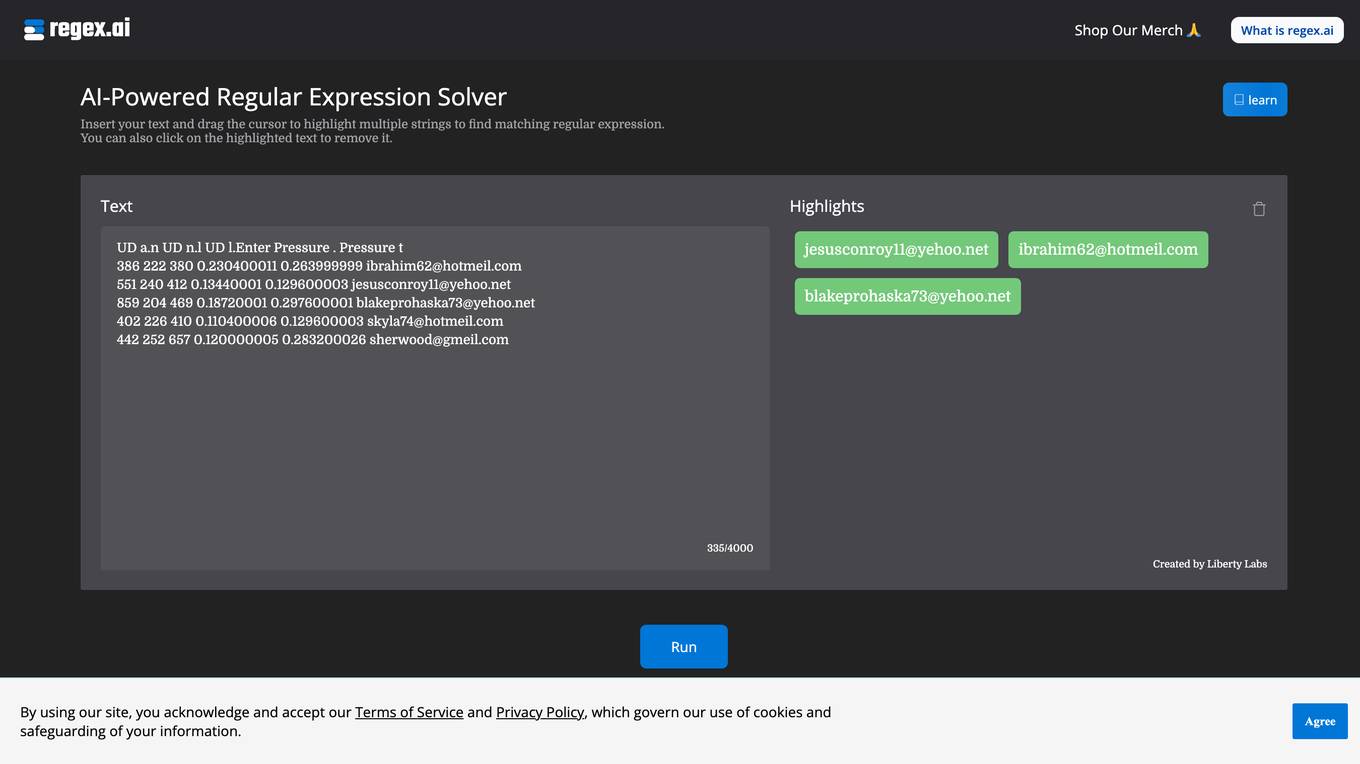
Regex.ai
Regex.ai is an AI-powered regular expression solver that helps users find matching regular expressions for their text. Users can insert their text and drag the cursor to highlight multiple strings to find matching regular expression. They can also click on the highlighted text to remove it.
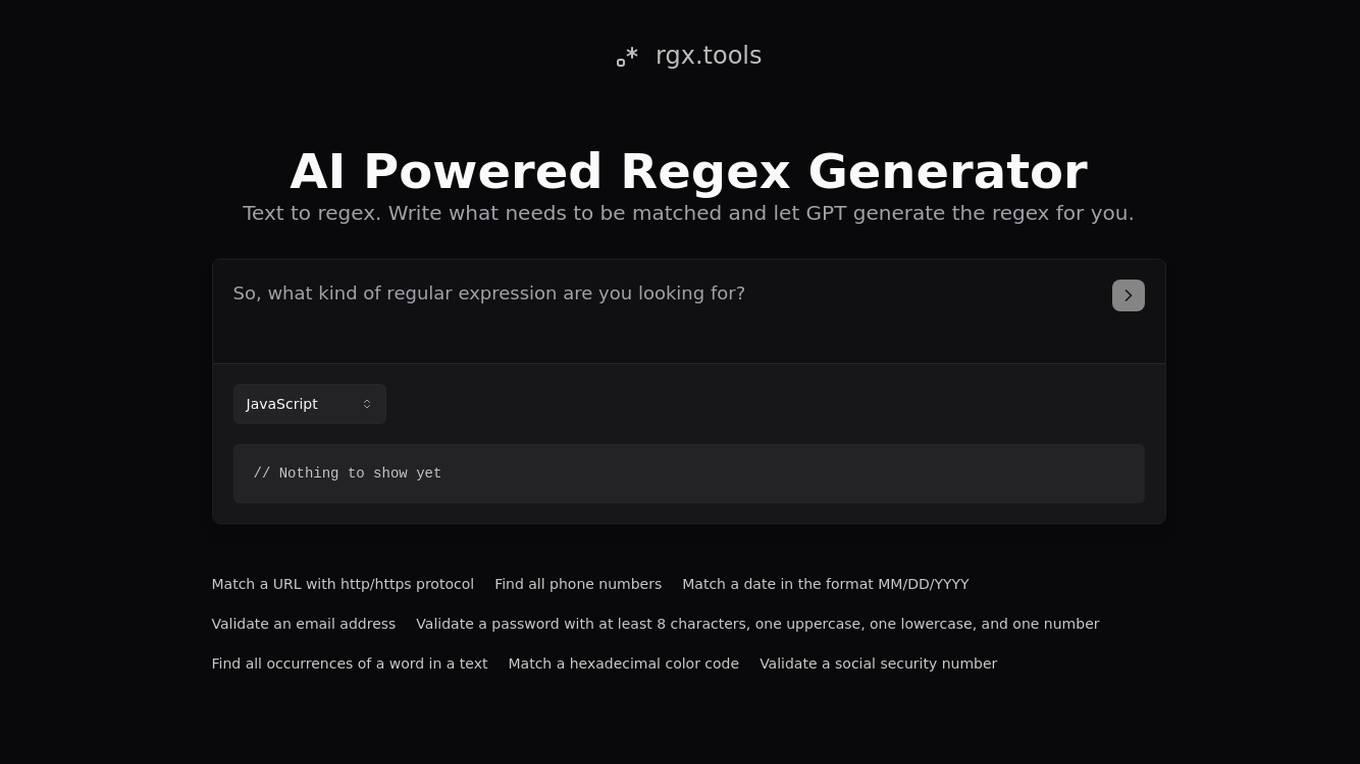
Rgx.tools
Rgx.tools is an AI-powered text-to-regex generator that helps users create regular expressions quickly and easily. It is a wrapper around OpenAI's gpt-3.5-chat model, which generates clean, readable, and efficient regular expressions based on user input. Rgx.tools is designed to make the process of writing regular expressions less painful and more accessible, even for those with limited experience.

Optimyzee
Optimyzee is an AI-powered Ad Management tool that structures and optimizes Google Ads campaigns in a few minutes, just like a senior PPC specialist. It offers a range of features to help businesses create and publish cost-effective Google Search campaigns from scratch. Optimyzee uses AI to provide relevant campaign structure, keyword suggestions, RSA builder, and real-time ads validation. With Optimyzee, businesses can increase their CTR by 200%, decrease their CPC by 35%, and scale their CVR by 4 times.
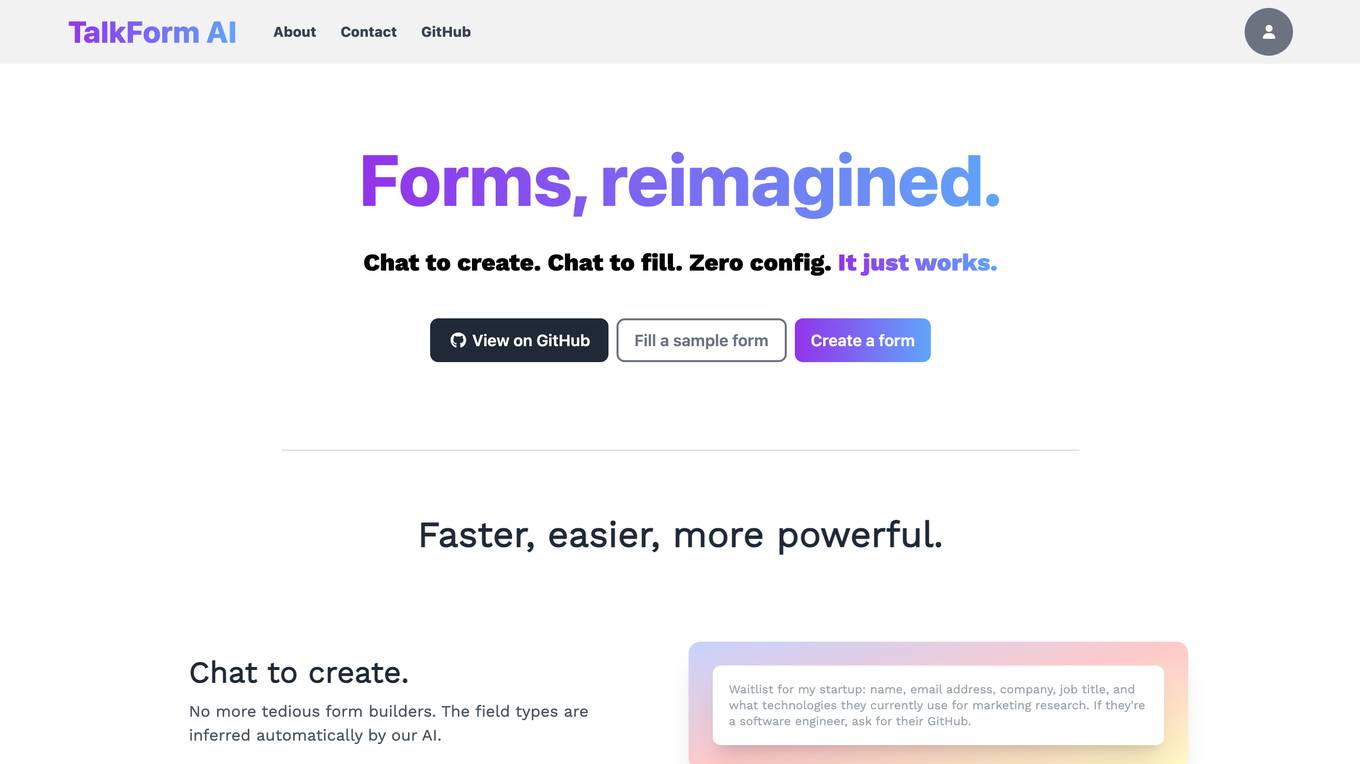
TalkForm AI
TalkForm AI is a revolutionary form builder that uses AI to make creating and filling out forms faster, easier, and more powerful. With TalkForm AI, you can simply chat to create forms, and the AI will automatically infer the field types and validate, clean, structure, and fill the fields. This means that you can create complex forms in seconds, and you can be confident that the data you collect will be accurate and consistent.
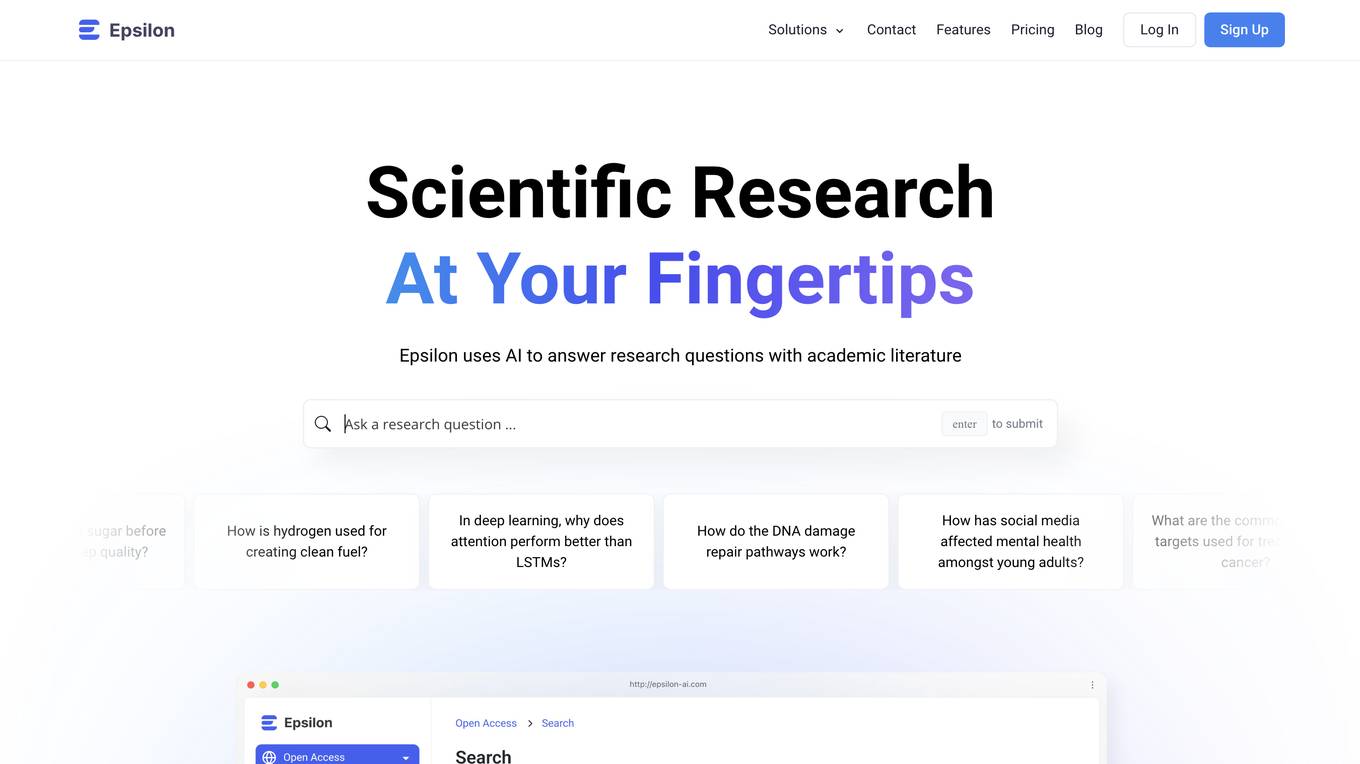
Epsilon
Epsilon is an AI-powered search engine that helps researchers find answers to their questions using academic literature. It uses AI to summarize relevant passages from over 200 million papers and provides inline references to the source content. Epsilon can also help researchers find publications and patents, validate claims in the literature, and save and summarize papers across libraries.
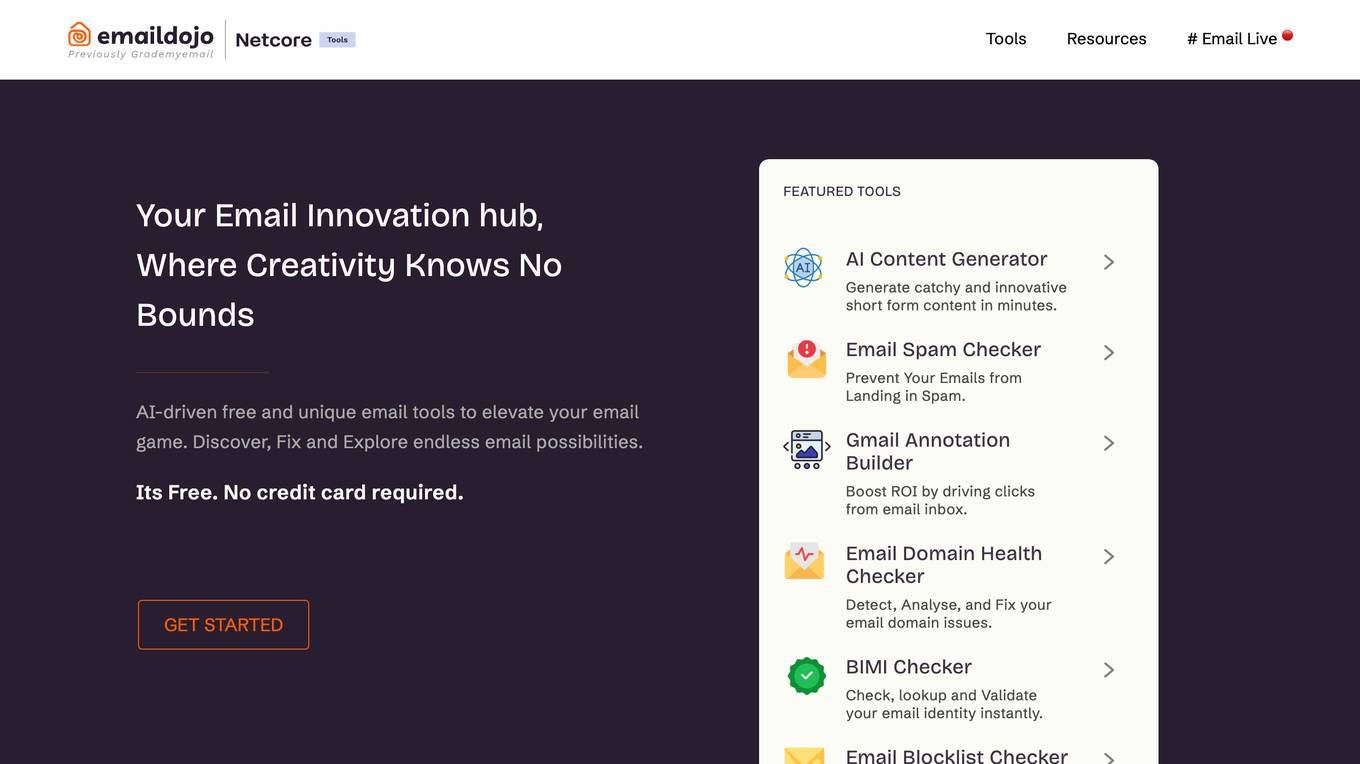
Emaildojo
Emaildojo is an AI-driven email innovation hub that provides free and unique email tools to help users elevate their email game. With Emaildojo, users can generate catchy and innovative short-form content, prevent their emails from landing in spam, boost ROI by driving clicks from email inbox, detect, analyze, and fix email domain issues, and check, lookup, and validate their email identity instantly. Emaildojo is the perfect tool for email marketers who want to improve their email deliverability and engagement.
20 - Open Source AI Tools
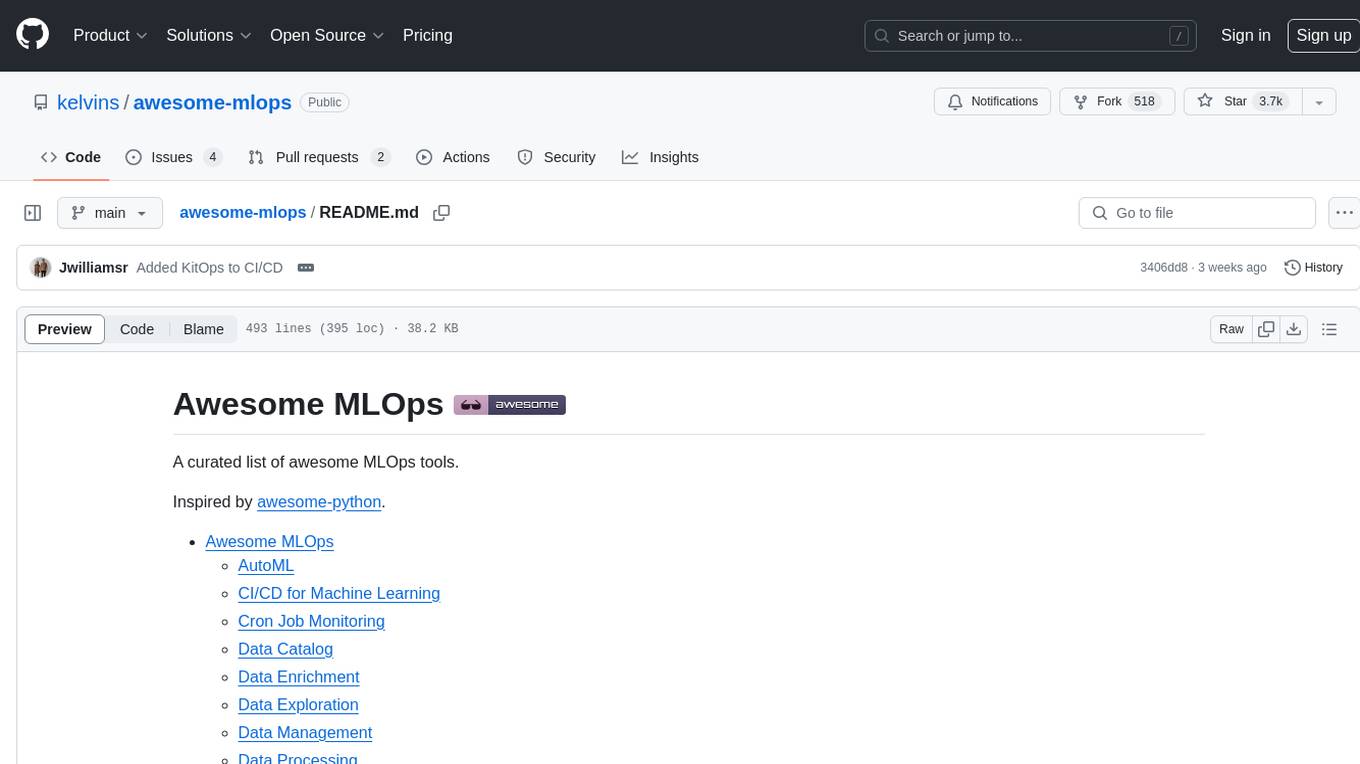
awesome-mlops
Awesome MLOps is a curated list of tools related to Machine Learning Operations, covering areas such as AutoML, CI/CD for Machine Learning, Data Cataloging, Data Enrichment, Data Exploration, Data Management, Data Processing, Data Validation, Data Visualization, Drift Detection, Feature Engineering, Feature Store, Hyperparameter Tuning, Knowledge Sharing, Machine Learning Platforms, Model Fairness and Privacy, Model Interpretability, Model Lifecycle, Model Serving, Model Testing & Validation, Optimization Tools, Simplification Tools, Visual Analysis and Debugging, and Workflow Tools. The repository provides a comprehensive collection of tools and resources for individuals and teams working in the field of MLOps.
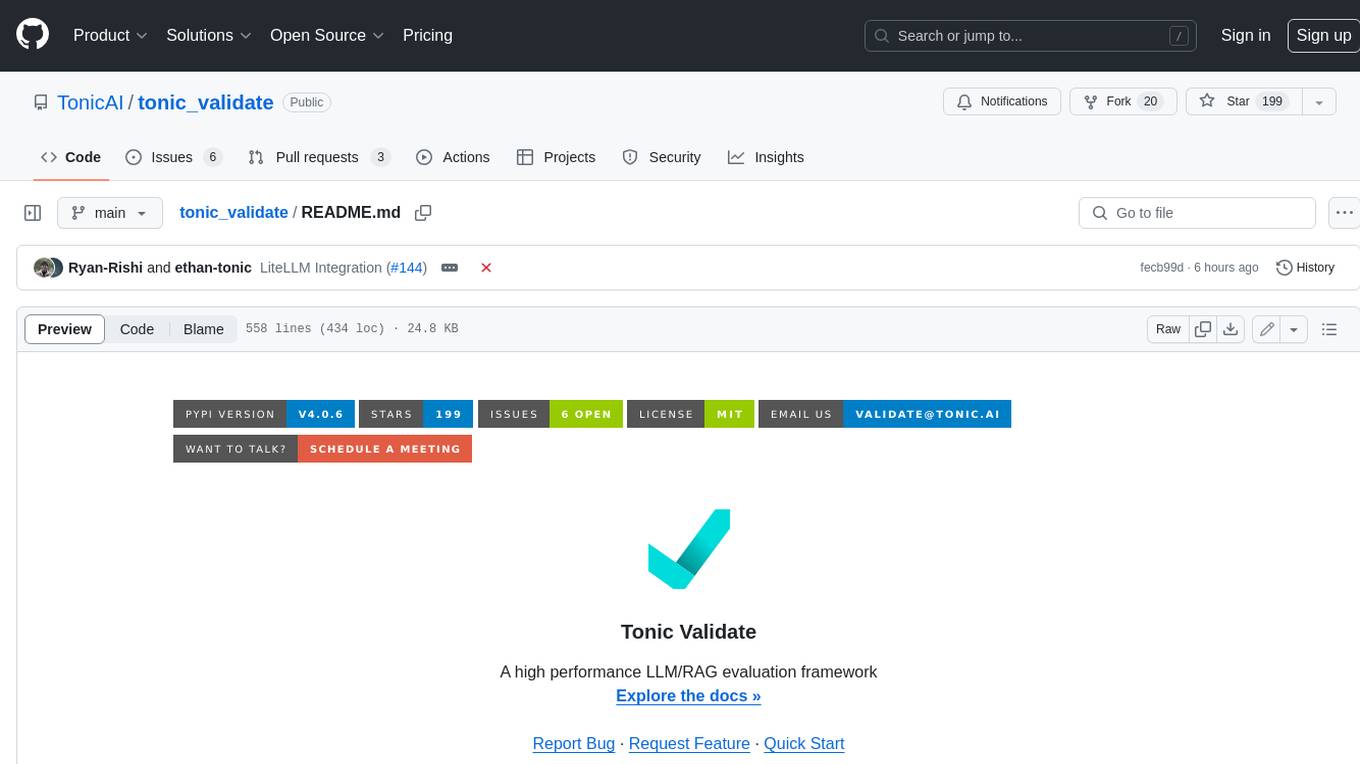
tonic_validate
Tonic Validate is a framework for the evaluation of LLM outputs, such as Retrieval Augmented Generation (RAG) pipelines. Validate makes it easy to evaluate, track, and monitor your LLM and RAG applications. Validate allows you to evaluate your LLM outputs through the use of our provided metrics which measure everything from answer correctness to LLM hallucination. Additionally, Validate has an optional UI to visualize your evaluation results for easy tracking and monitoring.
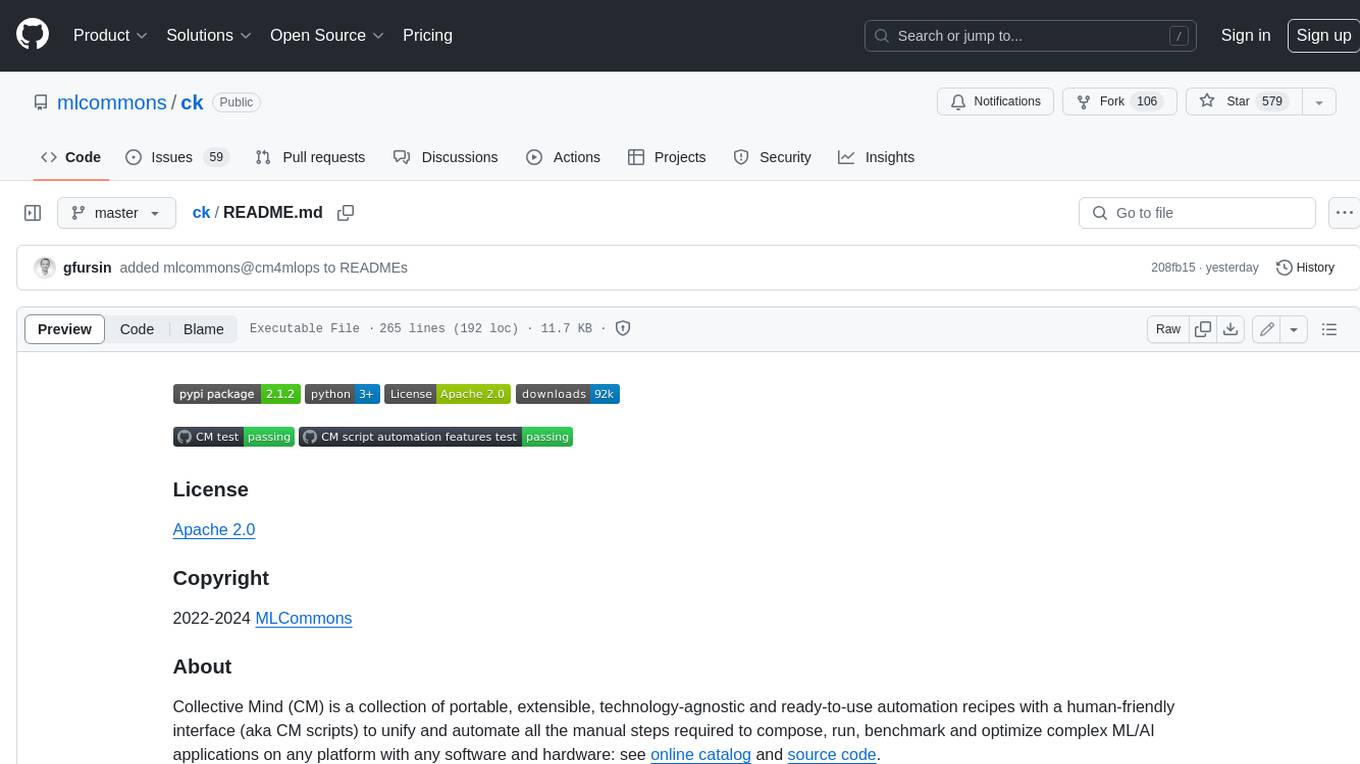
ck
Collective Mind (CM) is a collection of portable, extensible, technology-agnostic and ready-to-use automation recipes with a human-friendly interface (aka CM scripts) to unify and automate all the manual steps required to compose, run, benchmark and optimize complex ML/AI applications on any platform with any software and hardware: see online catalog and source code. CM scripts require Python 3.7+ with minimal dependencies and are continuously extended by the community and MLCommons members to run natively on Ubuntu, MacOS, Windows, RHEL, Debian, Amazon Linux and any other operating system, in a cloud or inside automatically generated containers while keeping backward compatibility - please don't hesitate to report encountered issues here and contact us via public Discord Server to help this collaborative engineering effort! CM scripts were originally developed based on the following requirements from the MLCommons members to help them automatically compose and optimize complex MLPerf benchmarks, applications and systems across diverse and continuously changing models, data sets, software and hardware from Nvidia, Intel, AMD, Google, Qualcomm, Amazon and other vendors: * must work out of the box with the default options and without the need to edit some paths, environment variables and configuration files; * must be non-intrusive, easy to debug and must reuse existing user scripts and automation tools (such as cmake, make, ML workflows, python poetry and containers) rather than substituting them; * must have a very simple and human-friendly command line with a Python API and minimal dependencies; * must require minimal or zero learning curve by using plain Python, native scripts, environment variables and simple JSON/YAML descriptions instead of inventing new workflow languages; * must have the same interface to run all automations natively, in a cloud or inside containers. CM scripts were successfully validated by MLCommons to modularize MLPerf inference benchmarks and help the community automate more than 95% of all performance and power submissions in the v3.1 round across more than 120 system configurations (models, frameworks, hardware) while reducing development and maintenance costs.
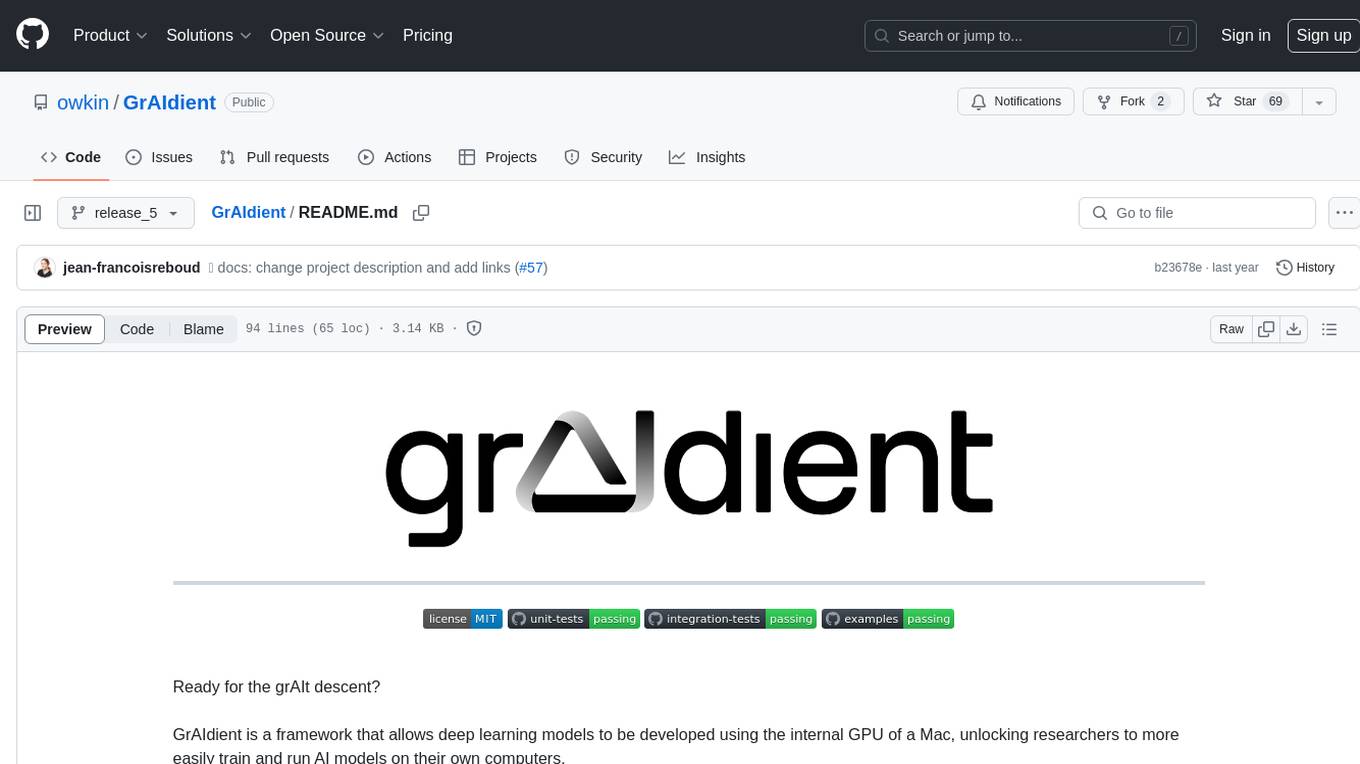
GrAIdient
GrAIdient is a framework designed to enable the development of deep learning models using the internal GPU of a Mac. It provides access to the graph of layers, allowing for unique model design with greater understanding, control, and reproducibility. The goal is to challenge the understanding of deep learning models, transitioning from black box to white box models. Key features include direct access to layers, native Mac GPU support, Swift language implementation, gradient checking, PyTorch interoperability, and more. The documentation covers main concepts, architecture, and examples. GrAIdient is MIT licensed.

mosec
Mosec is a high-performance and flexible model serving framework for building ML model-enabled backend and microservices. It bridges the gap between any machine learning models you just trained and the efficient online service API. * **Highly performant** : web layer and task coordination built with Rust 🦀, which offers blazing speed in addition to efficient CPU utilization powered by async I/O * **Ease of use** : user interface purely in Python 🐍, by which users can serve their models in an ML framework-agnostic manner using the same code as they do for offline testing * **Dynamic batching** : aggregate requests from different users for batched inference and distribute results back * **Pipelined stages** : spawn multiple processes for pipelined stages to handle CPU/GPU/IO mixed workloads * **Cloud friendly** : designed to run in the cloud, with the model warmup, graceful shutdown, and Prometheus monitoring metrics, easily managed by Kubernetes or any container orchestration systems * **Do one thing well** : focus on the online serving part, users can pay attention to the model optimization and business logic
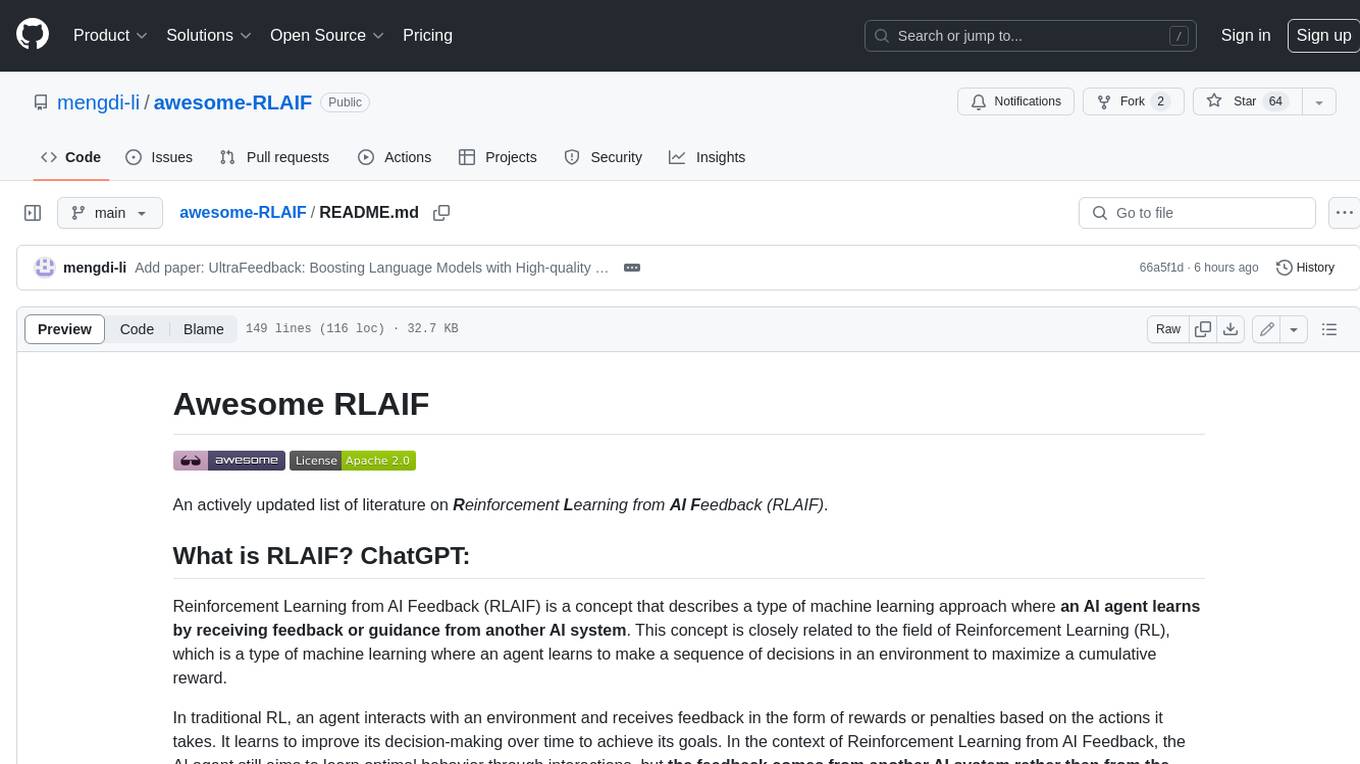
awesome-RLAIF
Reinforcement Learning from AI Feedback (RLAIF) is a concept that describes a type of machine learning approach where **an AI agent learns by receiving feedback or guidance from another AI system**. This concept is closely related to the field of Reinforcement Learning (RL), which is a type of machine learning where an agent learns to make a sequence of decisions in an environment to maximize a cumulative reward. In traditional RL, an agent interacts with an environment and receives feedback in the form of rewards or penalties based on the actions it takes. It learns to improve its decision-making over time to achieve its goals. In the context of Reinforcement Learning from AI Feedback, the AI agent still aims to learn optimal behavior through interactions, but **the feedback comes from another AI system rather than from the environment or human evaluators**. This can be **particularly useful in situations where it may be challenging to define clear reward functions or when it is more efficient to use another AI system to provide guidance**. The feedback from the AI system can take various forms, such as: - **Demonstrations** : The AI system provides demonstrations of desired behavior, and the learning agent tries to imitate these demonstrations. - **Comparison Data** : The AI system ranks or compares different actions taken by the learning agent, helping it to understand which actions are better or worse. - **Reward Shaping** : The AI system provides additional reward signals to guide the learning agent's behavior, supplementing the rewards from the environment. This approach is often used in scenarios where the RL agent needs to learn from **limited human or expert feedback or when the reward signal from the environment is sparse or unclear**. It can also be used to **accelerate the learning process and make RL more sample-efficient**. Reinforcement Learning from AI Feedback is an area of ongoing research and has applications in various domains, including robotics, autonomous vehicles, and game playing, among others.
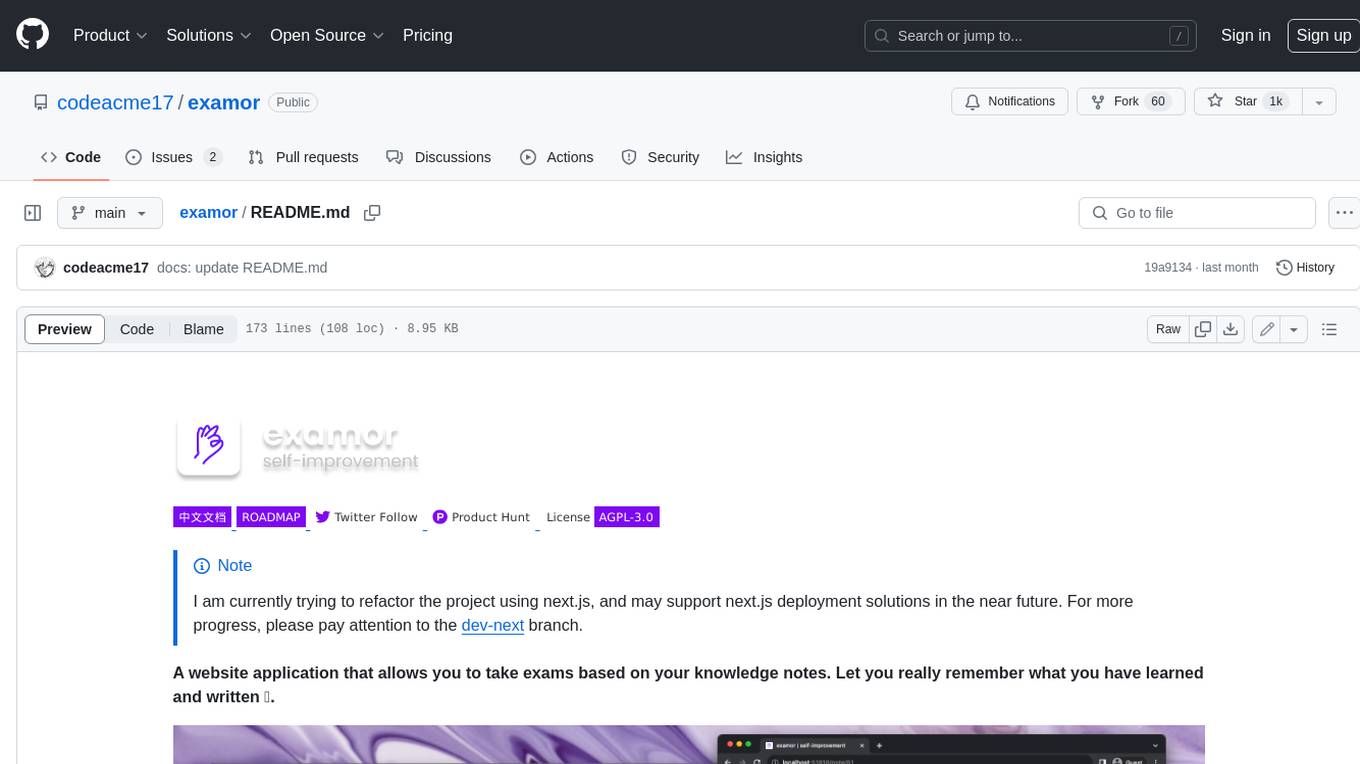
examor
Examor is a website application that allows you to take exams based on your knowledge notes. It helps you to remember what you have learned and written. The application generates a set of questions from the documents you upload, and you can answer them to test your knowledge. Examor also uses GPT to score and validate your answers, and provides you with feedback. The application is still in its early stages of development, but it has the potential to be a valuable tool for learners.

upgini
Upgini is an intelligent data search engine with a Python library that helps users find and add relevant features to their ML pipeline from various public, community, and premium external data sources. It automates the optimization of connected data sources by generating an optimal set of machine learning features using large language models, GraphNNs, and recurrent neural networks. The tool aims to simplify feature search and enrichment for external data to make it a standard approach in machine learning pipelines. It democratizes access to data sources for the data science community.
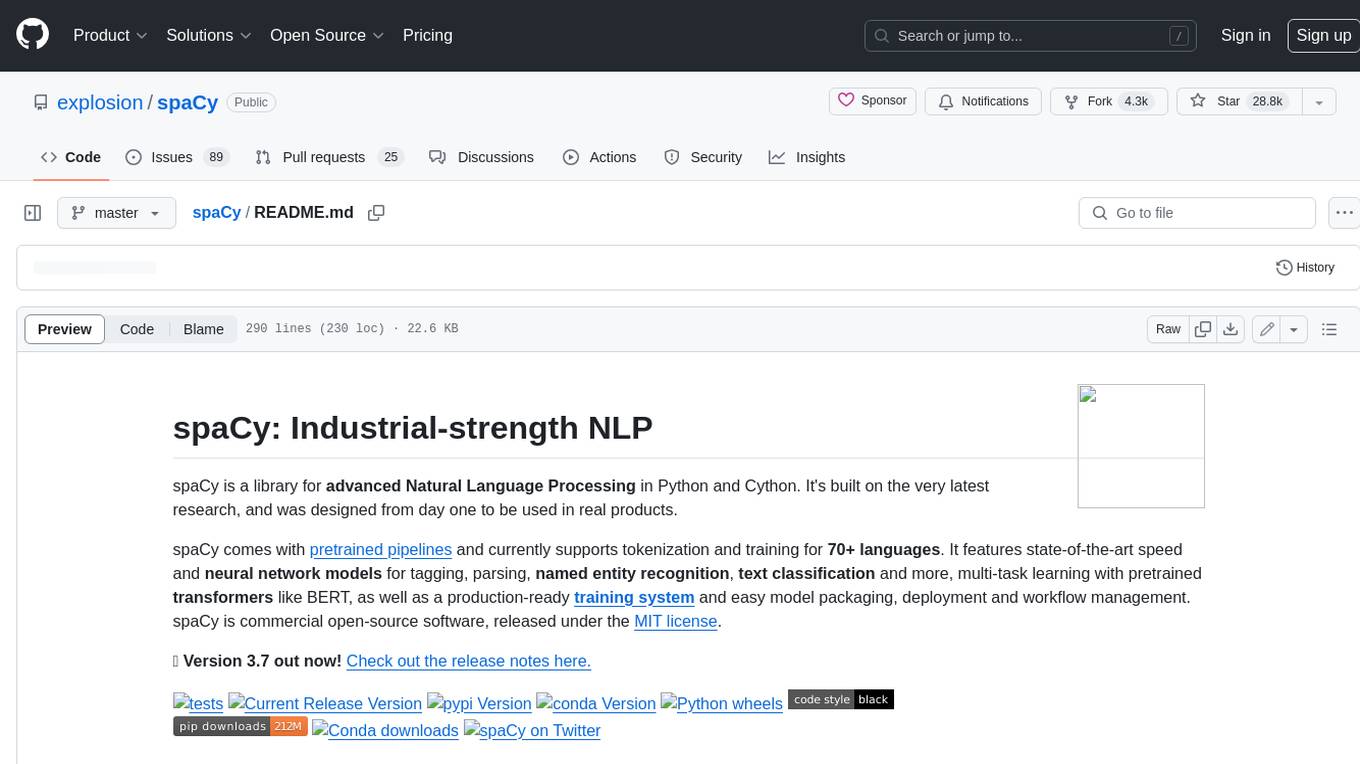
spaCy
spaCy is an industrial-strength Natural Language Processing (NLP) library in Python and Cython. It incorporates the latest research and is designed for real-world applications. The library offers pretrained pipelines supporting 70+ languages, with advanced neural network models for tasks such as tagging, parsing, named entity recognition, and text classification. It also facilitates multi-task learning with pretrained transformers like BERT, along with a production-ready training system and streamlined model packaging, deployment, and workflow management. spaCy is commercial open-source software released under the MIT license.
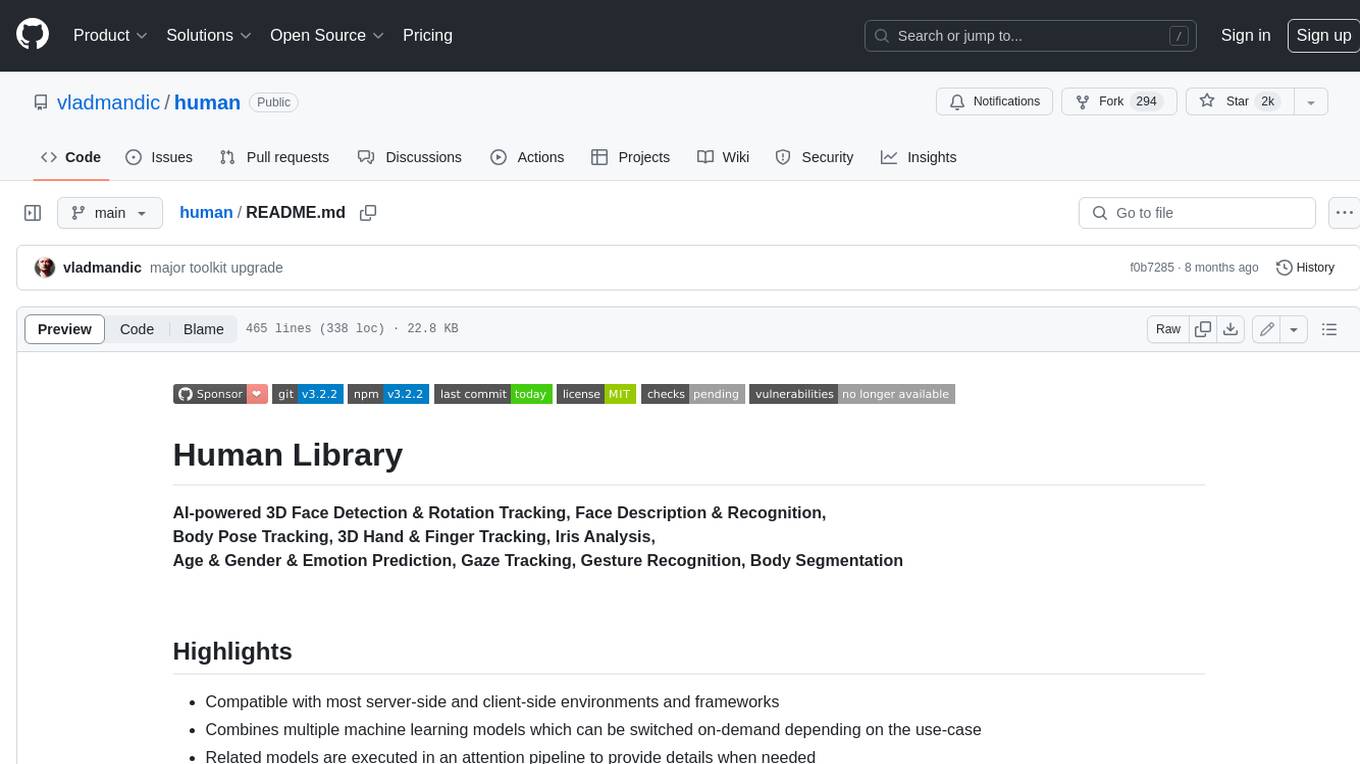
human
AI-powered 3D Face Detection & Rotation Tracking, Face Description & Recognition, Body Pose Tracking, 3D Hand & Finger Tracking, Iris Analysis, Age & Gender & Emotion Prediction, Gaze Tracking, Gesture Recognition, Body Segmentation
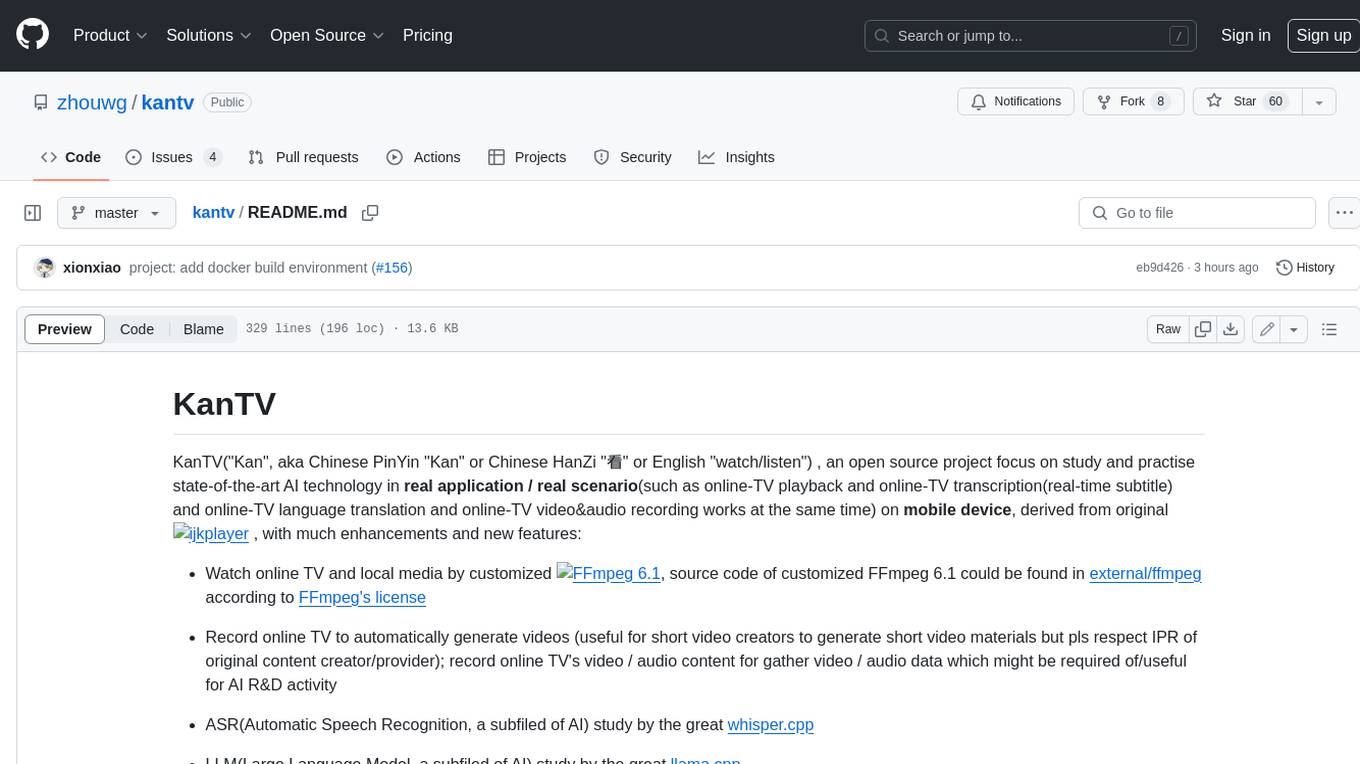
kantv
KanTV is an open-source project that focuses on studying and practicing state-of-the-art AI technology in real applications and scenarios, such as online TV playback, transcription, translation, and video/audio recording. It is derived from the original ijkplayer project and includes many enhancements and new features, including: * Watching online TV and local media using a customized FFmpeg 6.1. * Recording online TV to automatically generate videos. * Studying ASR (Automatic Speech Recognition) using whisper.cpp. * Studying LLM (Large Language Model) using llama.cpp. * Studying SD (Text to Image by Stable Diffusion) using stablediffusion.cpp. * Generating real-time English subtitles for English online TV using whisper.cpp. * Running/experiencing LLM on Xiaomi 14 using llama.cpp. * Setting up a customized playlist and using the software to watch the content for R&D activity. * Refactoring the UI to be closer to a real commercial Android application (currently only supports English). Some goals of this project are: * To provide a well-maintained "workbench" for ASR researchers interested in practicing state-of-the-art AI technology in real scenarios on mobile devices (currently focusing on Android). * To provide a well-maintained "workbench" for LLM researchers interested in practicing state-of-the-art AI technology in real scenarios on mobile devices (currently focusing on Android). * To create an Android "turn-key project" for AI experts/researchers (who may not be familiar with regular Android software development) to focus on device-side AI R&D activity, where part of the AI R&D activity (algorithm improvement, model training, model generation, algorithm validation, model validation, performance benchmark, etc.) can be done very easily using Android Studio IDE and a powerful Android phone.
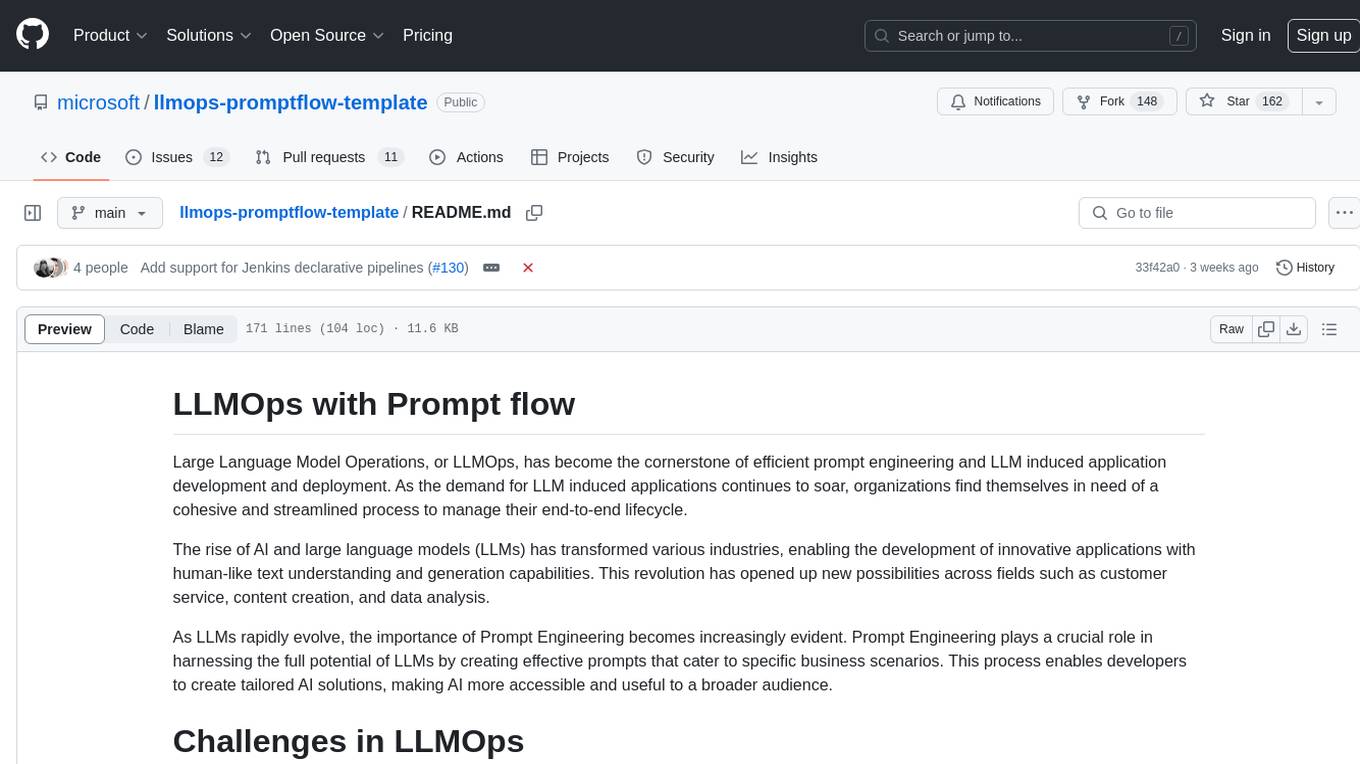
llmops-promptflow-template
LLMOps with Prompt flow is a template and guidance for building LLM-infused apps using Prompt flow. It provides centralized code hosting, lifecycle management, variant and hyperparameter experimentation, A/B deployment, many-to-many dataset/flow relationships, multiple deployment targets, comprehensive reporting, BYOF capabilities, configuration-based development, local prompt experimentation and evaluation, endpoint testing, and optional Human-in-loop validation. The tool is customizable to suit various application needs.

universal
The Universal Numbers Library is a header-only C++ template library designed for universal number arithmetic, offering alternatives to native integer and floating-point for mixed-precision algorithm development and optimization. It tailors arithmetic types to the application's precision and dynamic range, enabling improved application performance and energy efficiency. The library provides fast implementations of special IEEE-754 formats like quarter precision, half-precision, and quad precision, as well as vendor-specific extensions. It supports static and elastic integers, decimals, fixed-points, rationals, linear floats, tapered floats, logarithmic, interval, and adaptive-precision integers, rationals, and floats. The library is suitable for AI, DSP, HPC, and HFT algorithms.
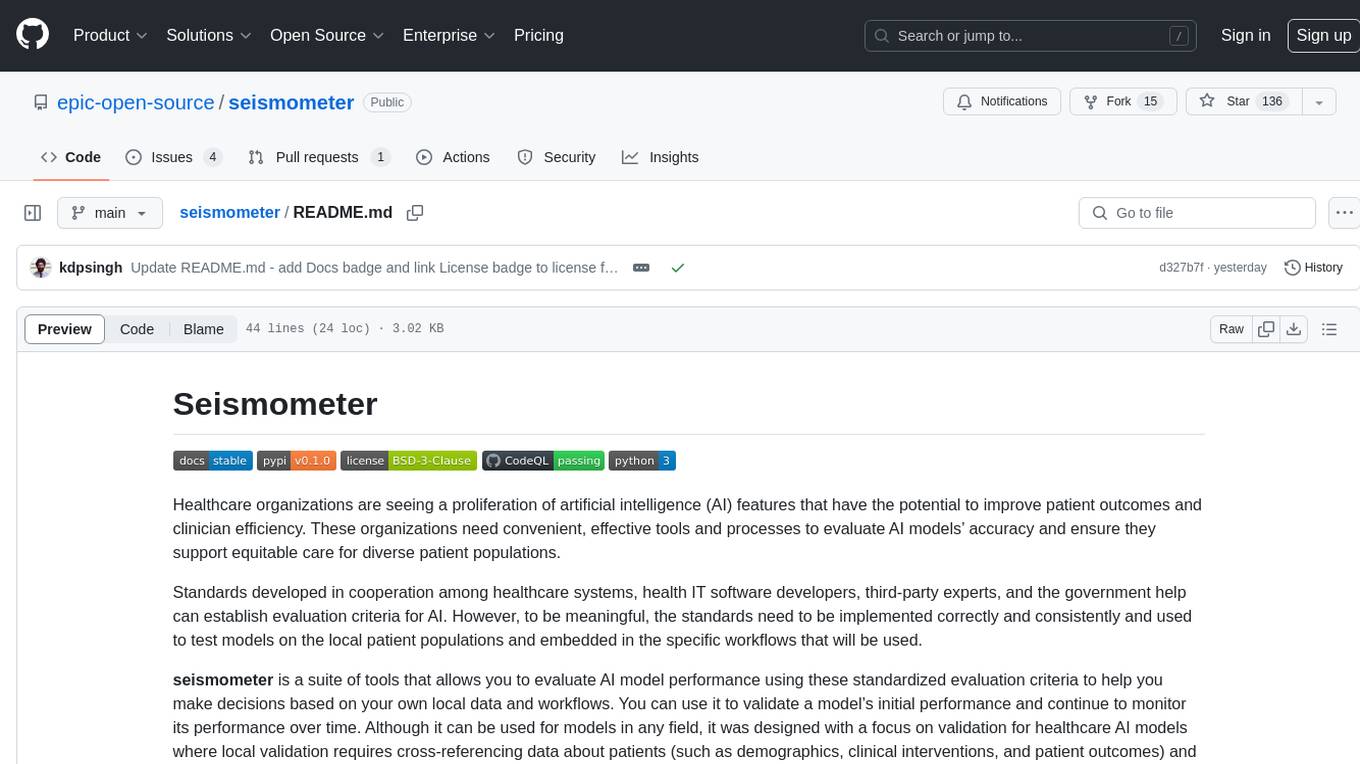
seismometer
Seismometer is a suite of tools designed to evaluate AI model performance in healthcare settings. It helps healthcare organizations assess the accuracy of AI models and ensure equitable care for diverse patient populations. The tool allows users to validate model performance using standardized evaluation criteria based on local data and workflows. It includes templates for analyzing statistical performance, fairness across different cohorts, and the impact of interventions on outcomes. Seismometer is continuously evolving to incorporate new validation and analysis techniques.
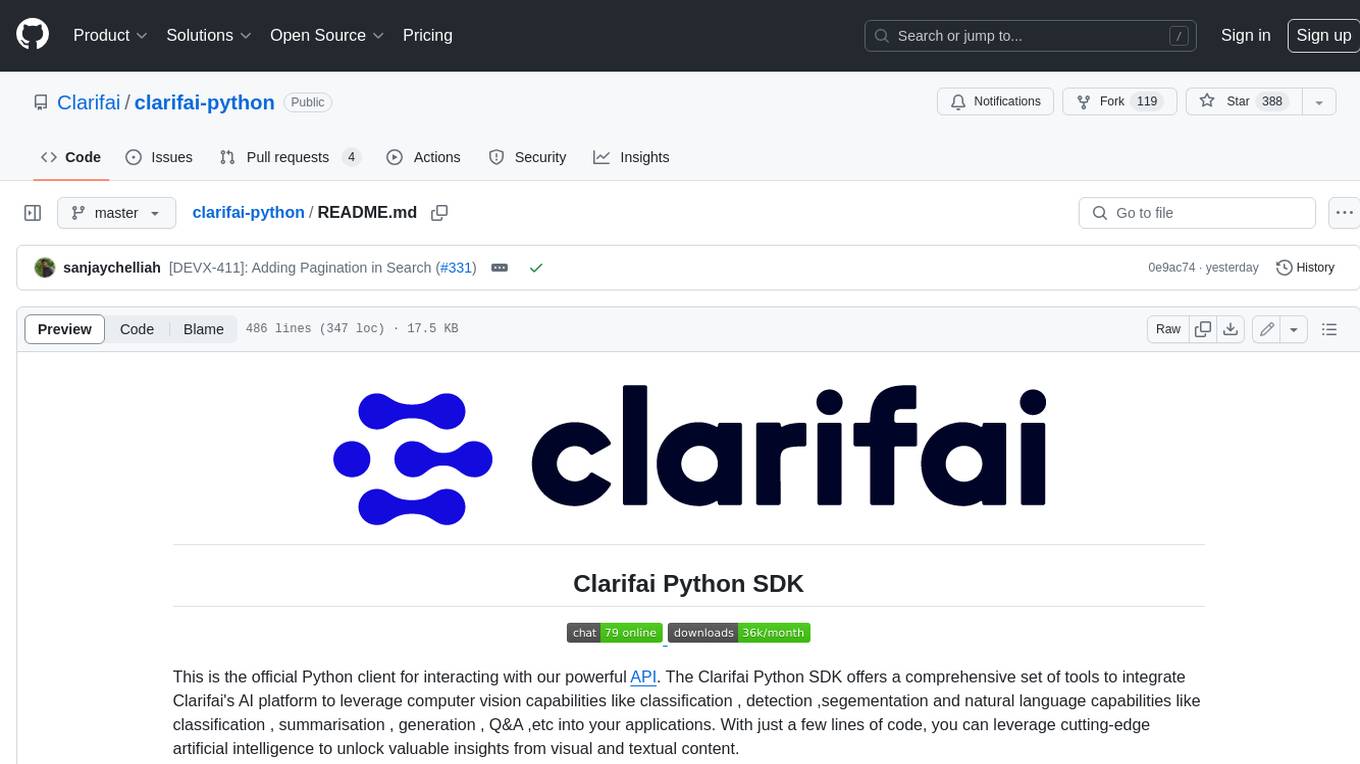
clarifai-python
The Clarifai Python SDK offers a comprehensive set of tools to integrate Clarifai's AI platform to leverage computer vision capabilities like classification , detection ,segementation and natural language capabilities like classification , summarisation , generation , Q&A ,etc into your applications. With just a few lines of code, you can leverage cutting-edge artificial intelligence to unlock valuable insights from visual and textual content.
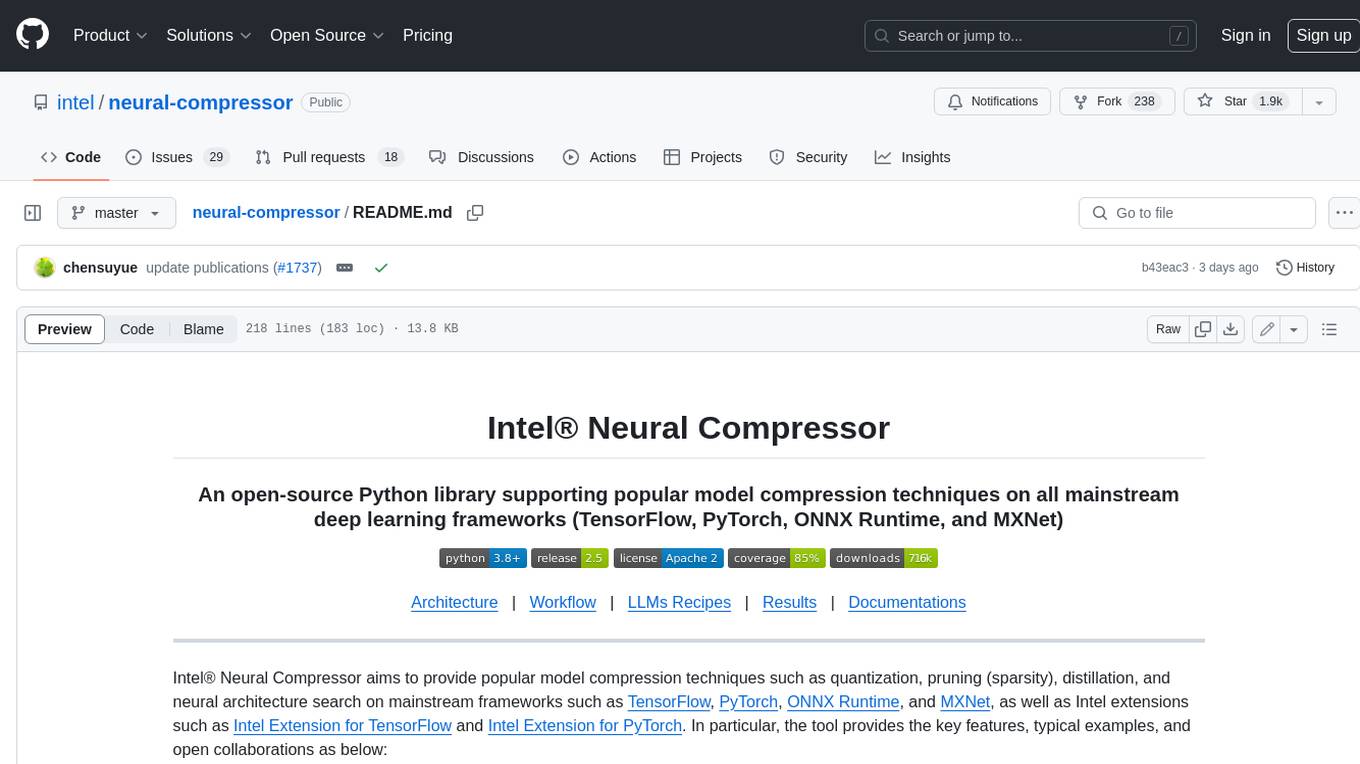
neural-compressor
Intel® Neural Compressor is an open-source Python library that supports popular model compression techniques such as quantization, pruning (sparsity), distillation, and neural architecture search on mainstream frameworks such as TensorFlow, PyTorch, ONNX Runtime, and MXNet. It provides key features, typical examples, and open collaborations, including support for a wide range of Intel hardware, validation of popular LLMs, and collaboration with cloud marketplaces, software platforms, and open AI ecosystems.
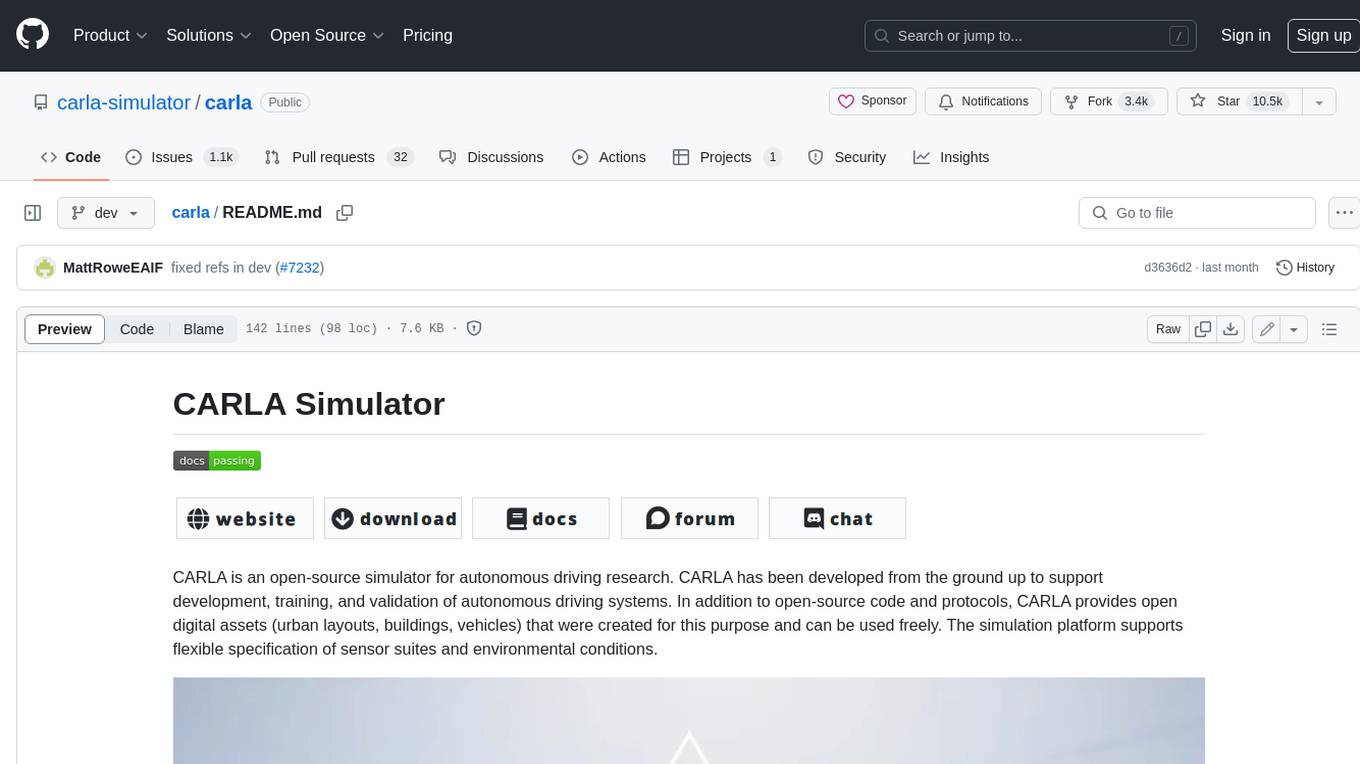
carla
CARLA is an open-source simulator for autonomous driving research. It provides open-source code, protocols, and digital assets (urban layouts, buildings, vehicles) for developing, training, and validating autonomous driving systems. CARLA supports flexible specification of sensor suites and environmental conditions.
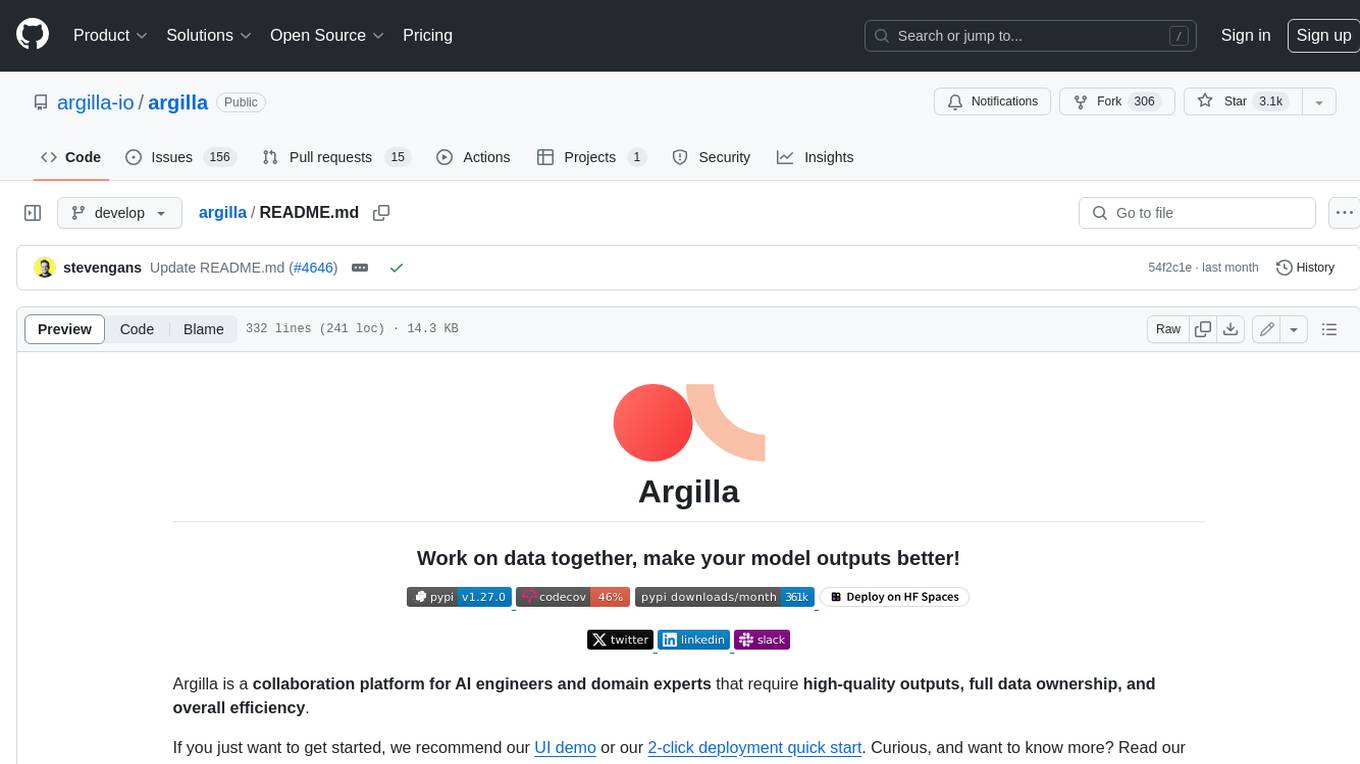
argilla
Argilla is a collaboration platform for AI engineers and domain experts that require high-quality outputs, full data ownership, and overall efficiency. It helps users improve AI output quality through data quality, take control of their data and models, and improve efficiency by quickly iterating on the right data and models. Argilla is an open-source community-driven project that provides tools for achieving and maintaining high-quality data standards, with a focus on NLP and LLMs. It is used by AI teams from companies like the Red Cross, Loris.ai, and Prolific to improve the quality and efficiency of AI projects.

hass-ollama-conversation
The Ollama Conversation integration adds a conversation agent powered by Ollama in Home Assistant. This agent can be used in automations to query information provided by Home Assistant about your house, including areas, devices, and their states. Users can install the integration via HACS and configure settings such as API timeout, model selection, context size, maximum tokens, and other parameters to fine-tune the responses generated by the AI language model. Contributions to the project are welcome, and discussions can be held on the Home Assistant Community platform.
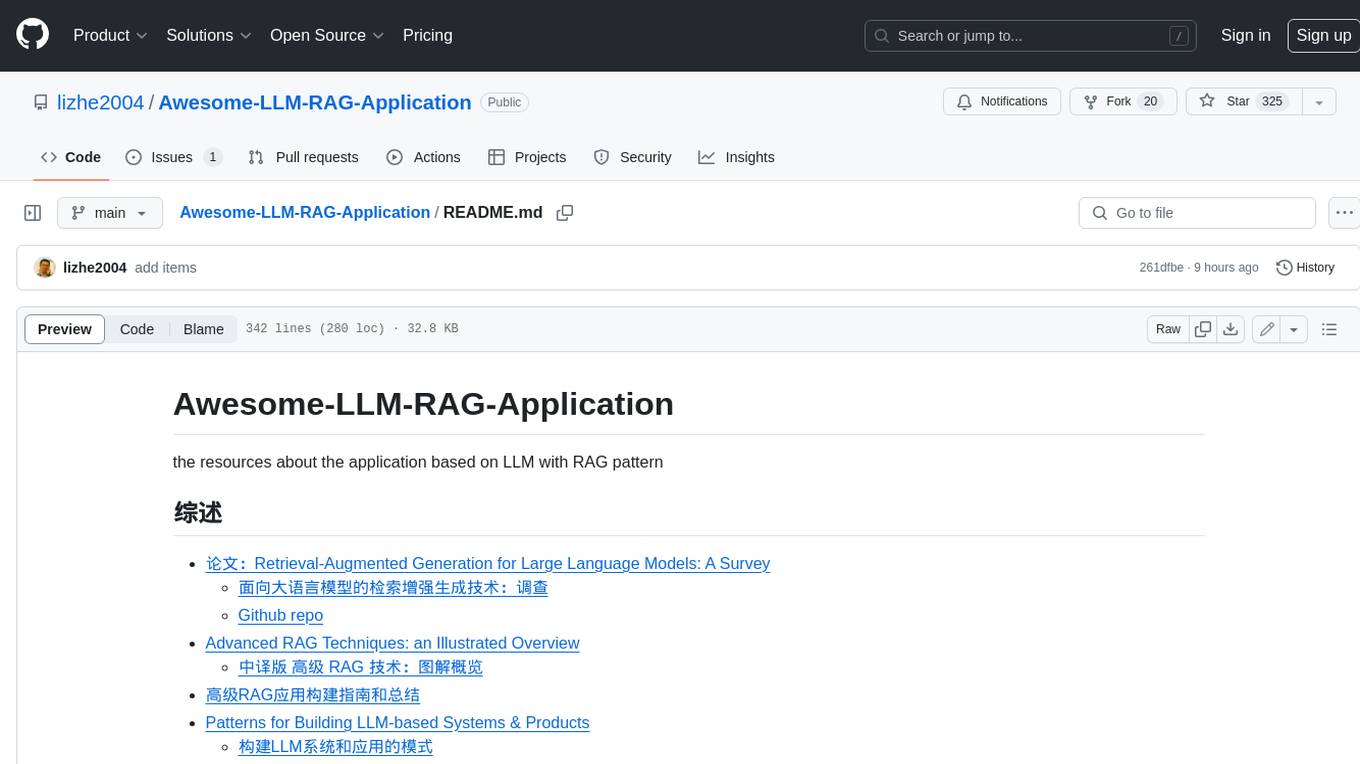
Awesome-LLM-RAG-Application
Awesome-LLM-RAG-Application is a repository that provides resources and information about applications based on Large Language Models (LLM) with Retrieval-Augmented Generation (RAG) pattern. It includes a survey paper, GitHub repo, and guides on advanced RAG techniques. The repository covers various aspects of RAG, including academic papers, evaluation benchmarks, downstream tasks, tools, and technologies. It also explores different frameworks, preprocessing tools, routing mechanisms, evaluation frameworks, embeddings, security guardrails, prompting tools, SQL enhancements, LLM deployment, observability tools, and more. The repository aims to offer comprehensive knowledge on RAG for readers interested in exploring and implementing LLM-based systems and products.
20 - OpenAI Gpts
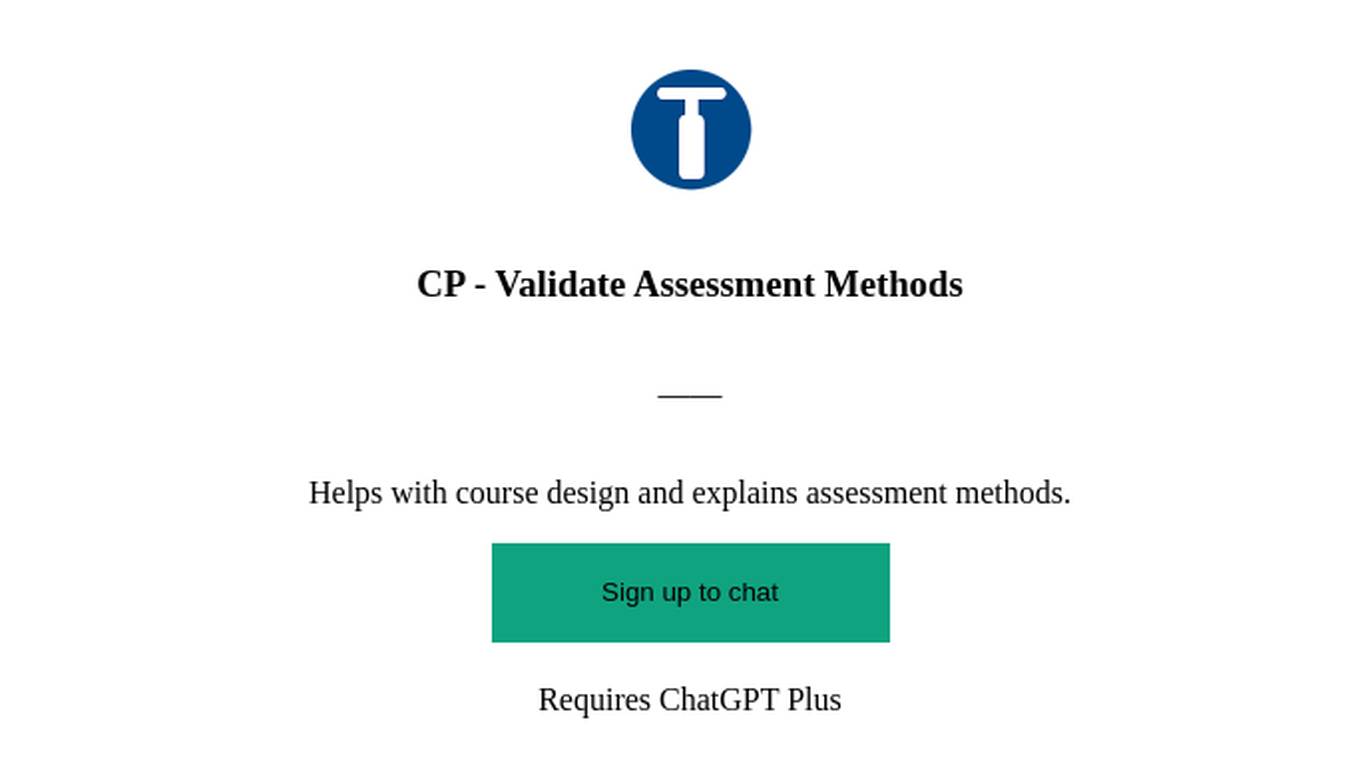
CP - Validate Assessment Methods
Helps with course design and explains assessment methods.
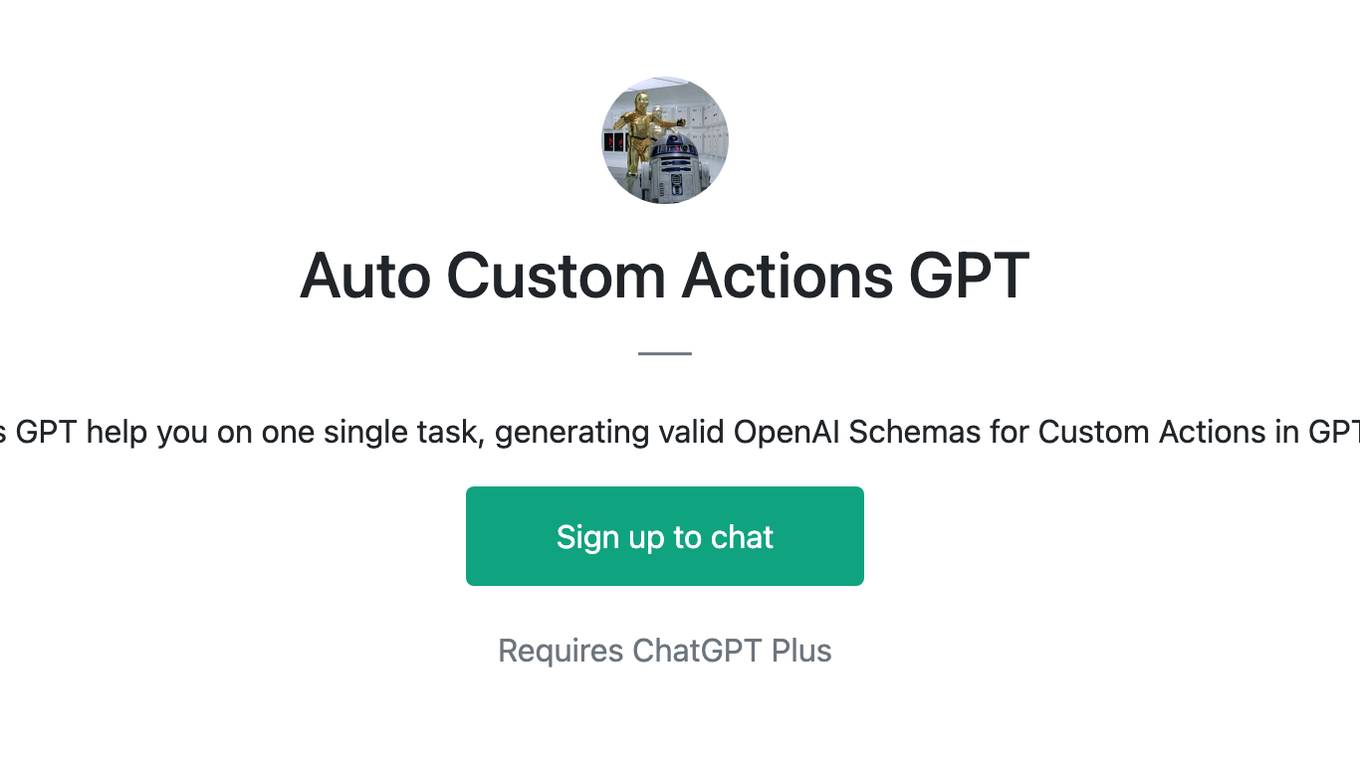
Auto Custom Actions GPT
This GPT help you on one single task, generating valid OpenAI Schemas for Custom Actions in GPTs
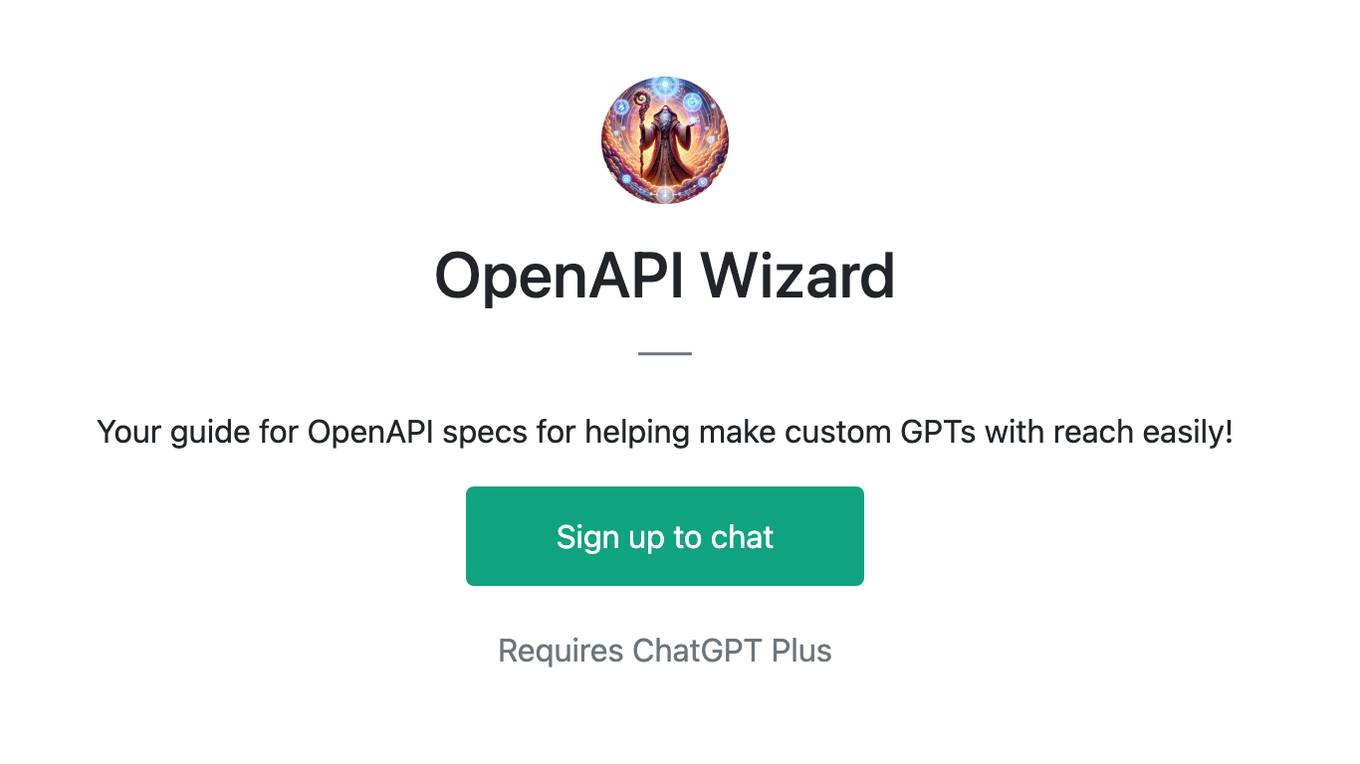
OpenAPI Wizard
Your guide for OpenAPI specs for helping make custom GPTs with reach easily!
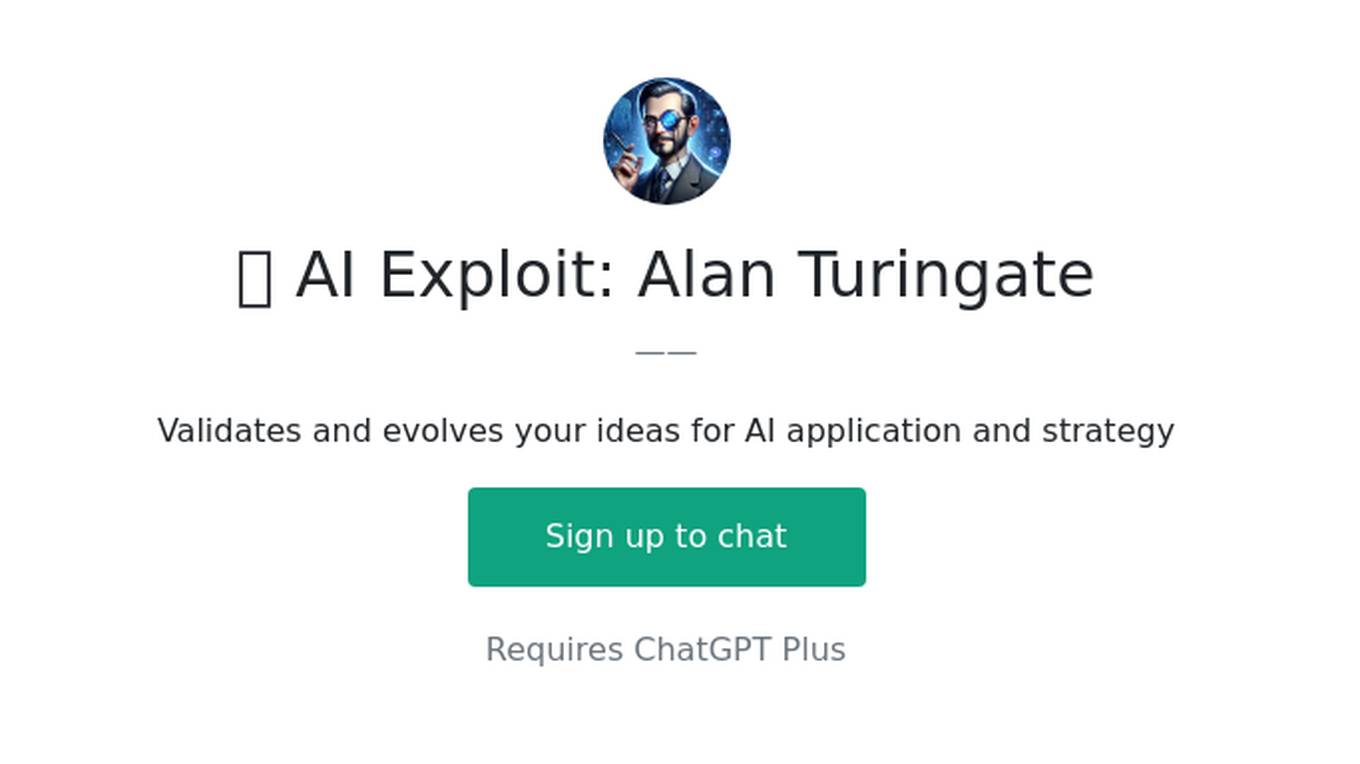
🧐 AI Exploit: Alan Turingate
Validates and evolves your ideas for AI application and strategy
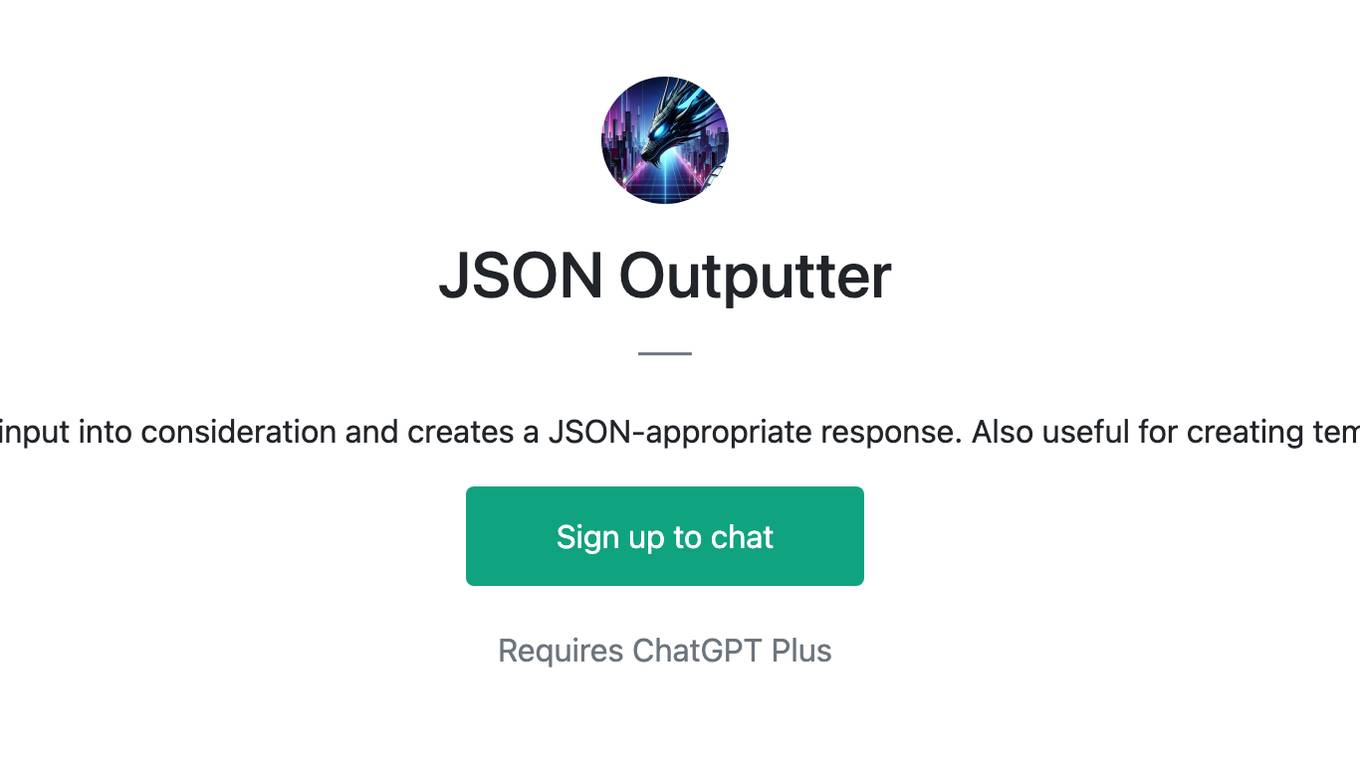
JSON Outputter
Takes all input into consideration and creates a JSON-appropriate response. Also useful for creating templates.
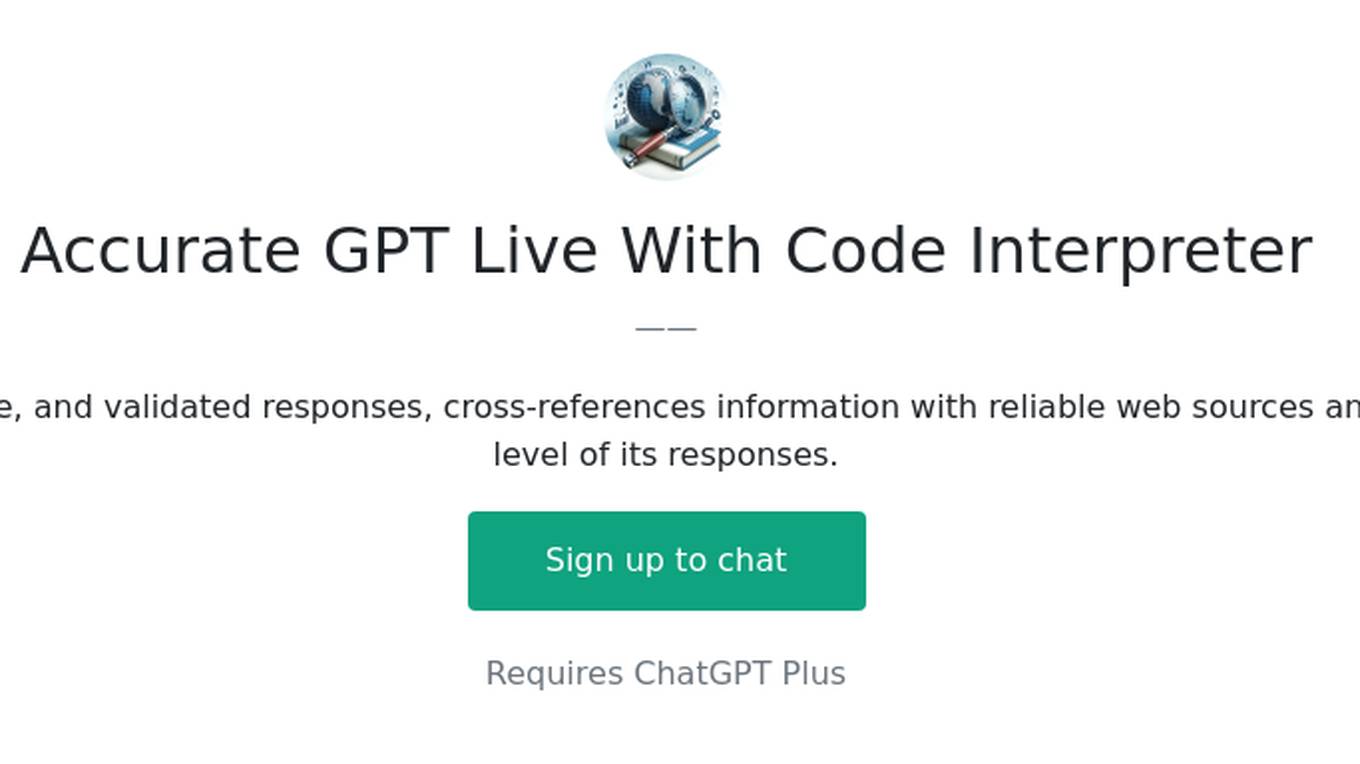
Accurate GPT Live With Code Interpreter
Expert in providing accurate, up-to-date, and validated responses, cross-references information with reliable web sources and informs users about the confidence level of its responses.
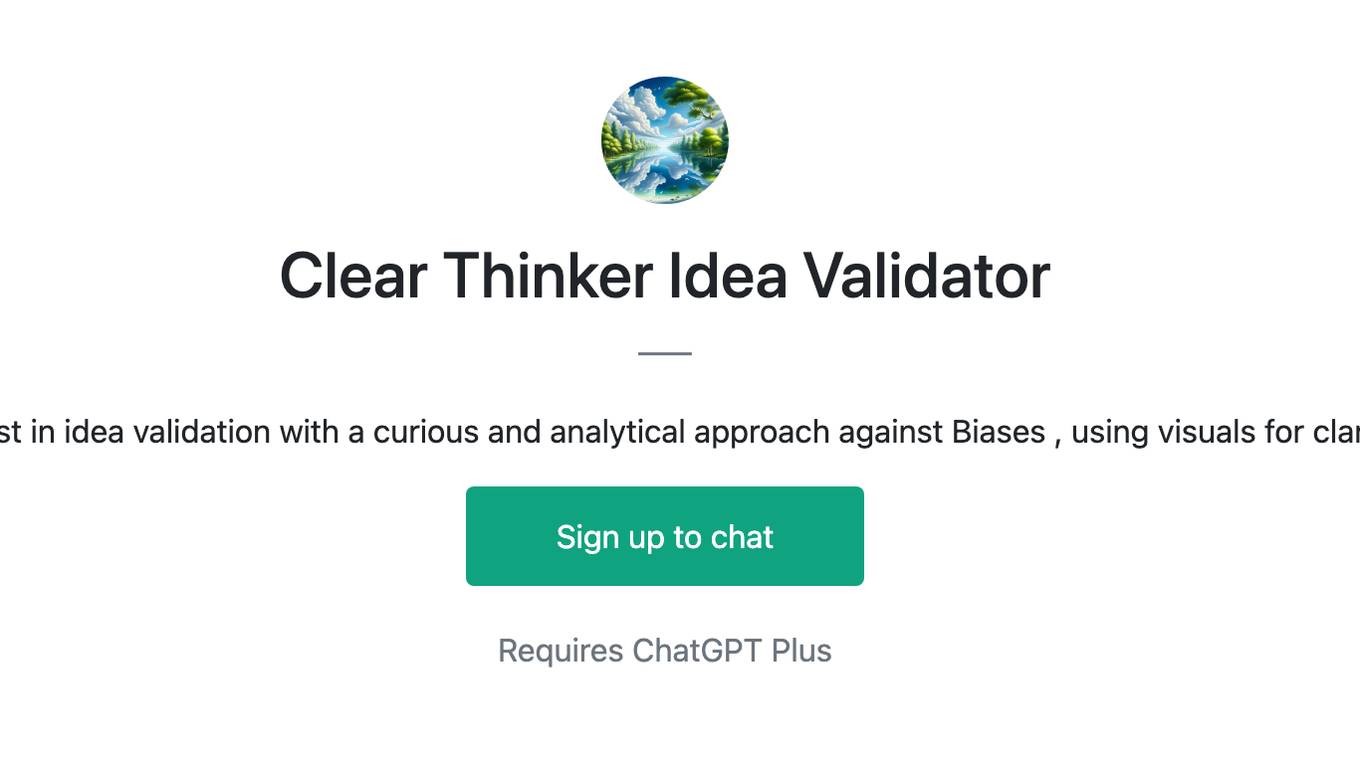
Clear Thinker Idea Validator
I assist in idea validation with a curious and analytical approach against Biases , using visuals for clarity.

Startup Business Validator
Refine your startup strategy with Startup Business Validator: Dive into SWOT, Business Model Canvas, PESTEL, and more for comprehensive insights. Got just an idea? We'll craft the details for you.
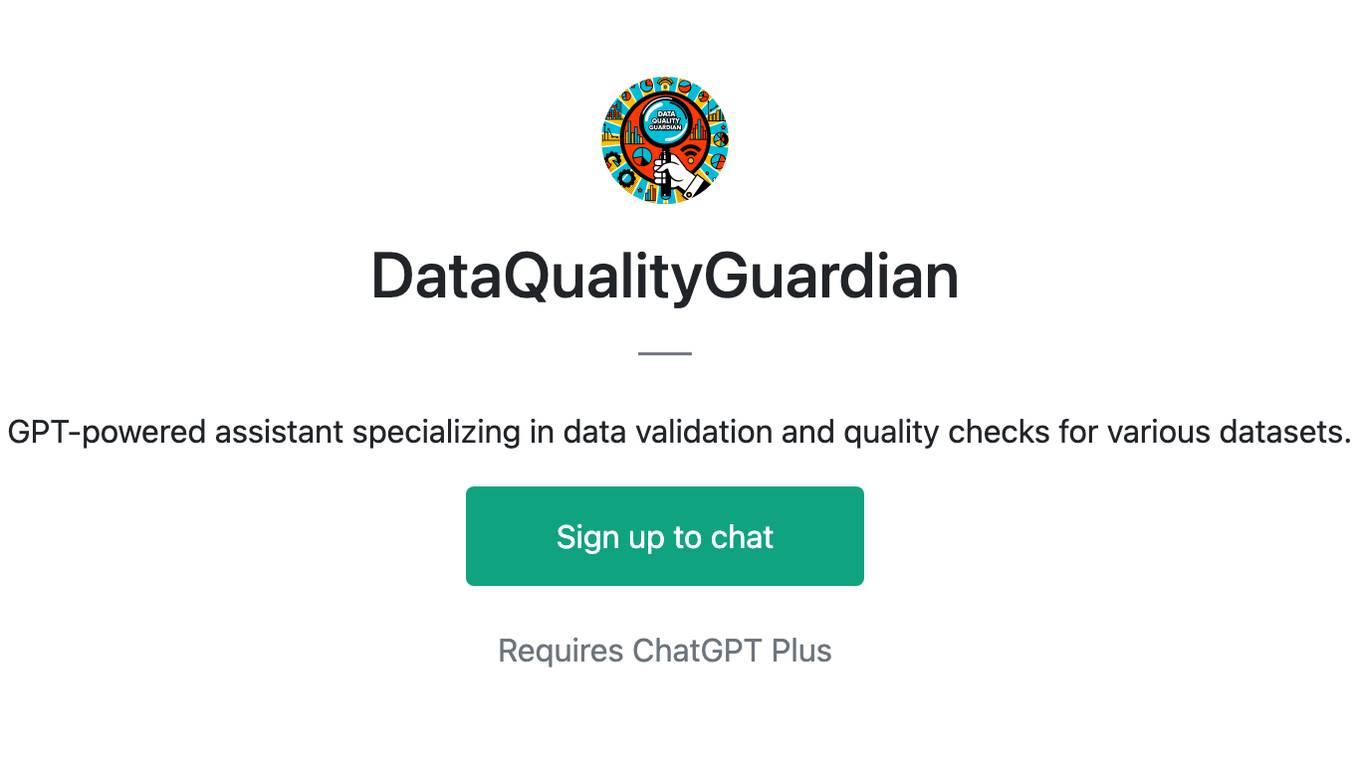
DataQualityGuardian
A GPT-powered assistant specializing in data validation and quality checks for various datasets.
Lean Startup Consultant
A serial entrepreneur consultant inspired by 'Lean Startup' principles.
